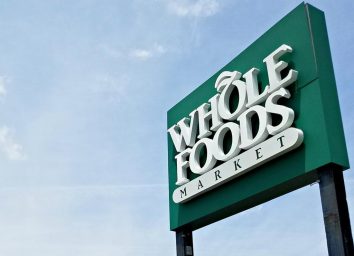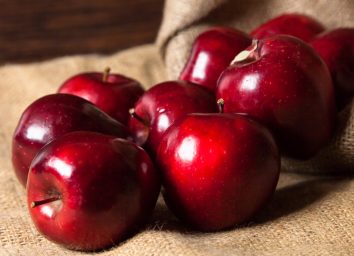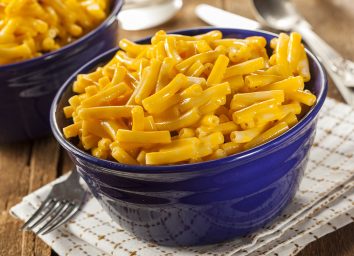50 Best Foods That Lower Your Cancer Risk
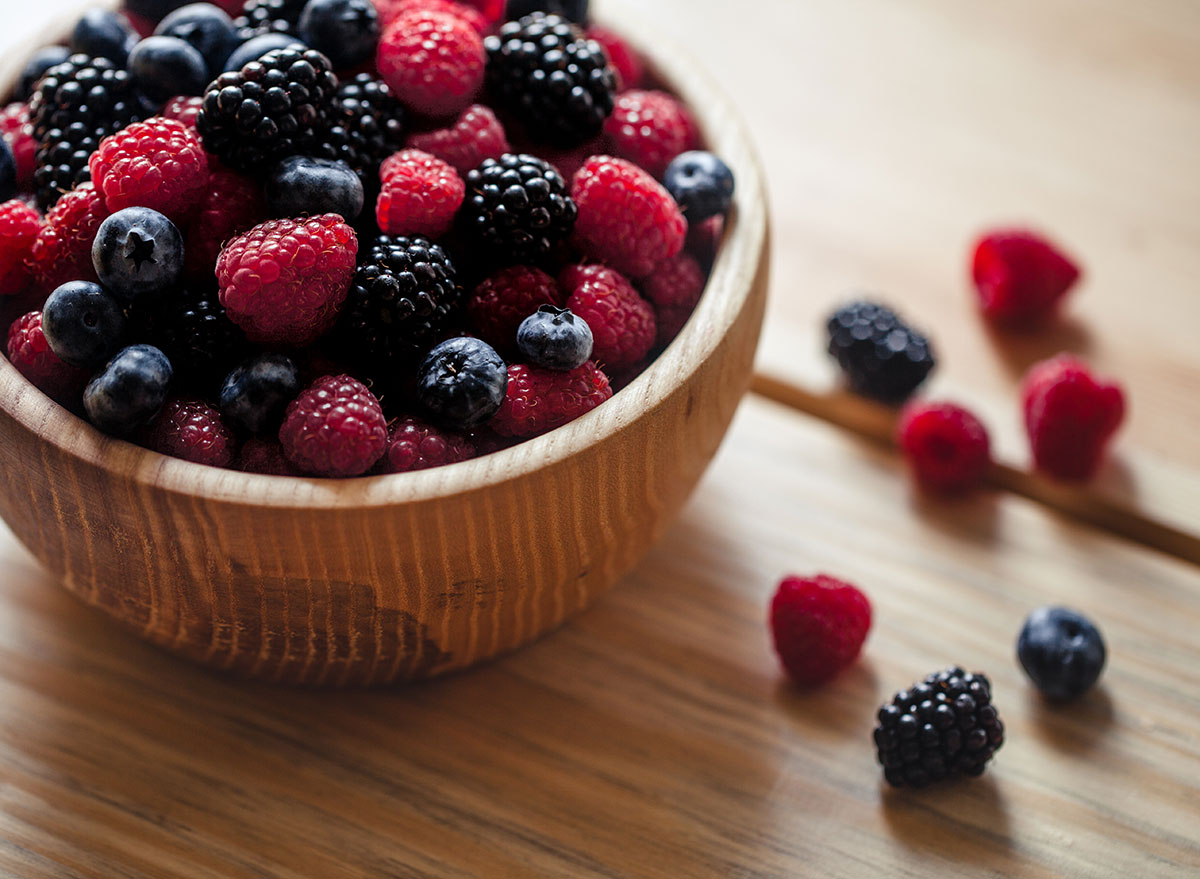
A cancer diagnosis can be one of the most defining moments of a person’s life. Unfortunately, the stark picture of doctors breaking the distressing news to family and friends is all too common. In 2020 alone, it was estimated that 1,806,590 new cases of cancer would be diagnosed in the U.S.
Fortunately, there are some precautions that you can take. Not using alcohol and tobacco in excess, getting immunized for certain viral infections like Hepatitis B and HPV, and changing your diet are all potent ways to slash your risk.
While there’s no guarantee of living cancer-free, replacing fried foods, processed meats, and sugary treats with these 50 foods that are scientifically proven to cut your cancer risk is a smart step. Check out the restorative foods below, and stock up on The 7 Healthiest Foods to Eat Right Now while you’re at it, too.
Mushrooms
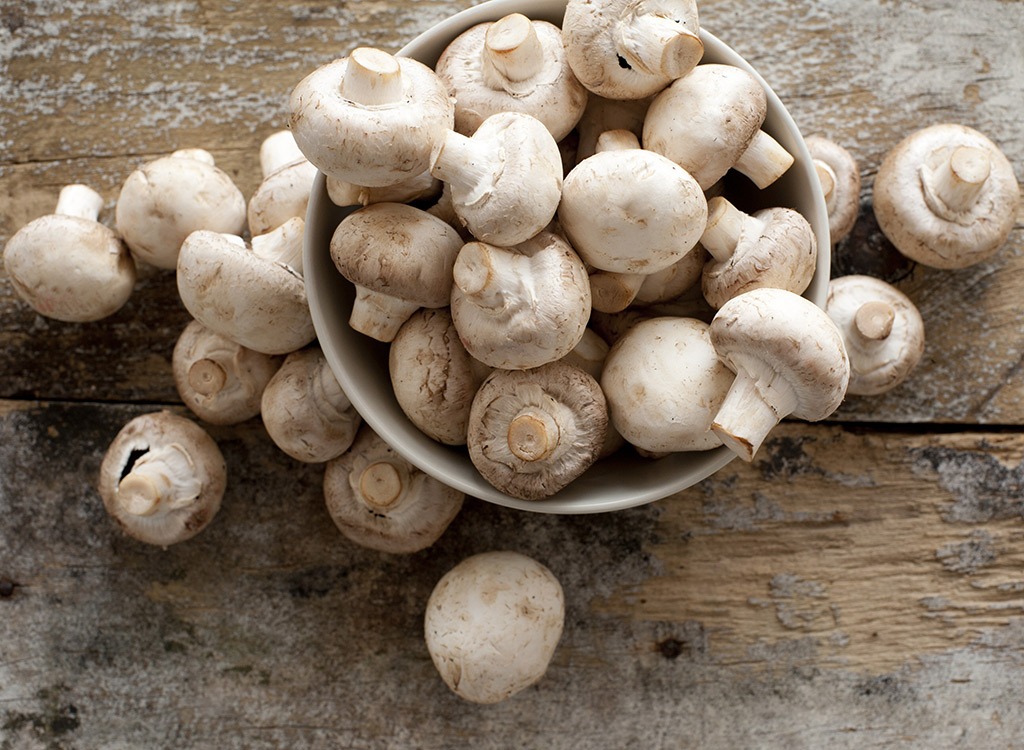
Our favorite burger toppers may do more than add a punch of umami and vitamin D to your meals. A study in the International Journal of Cancer found that Chinese women who consumed just 10 grams (the equivalent of one small veggie) or more of fresh ‘shrooms daily were about two-thirds less likely to develop breast cancer than those who avoided mushrooms. What’s more, high mushroom intake has also been associated with lower risk of breast cancer in premenopausal women.
Navy Beans
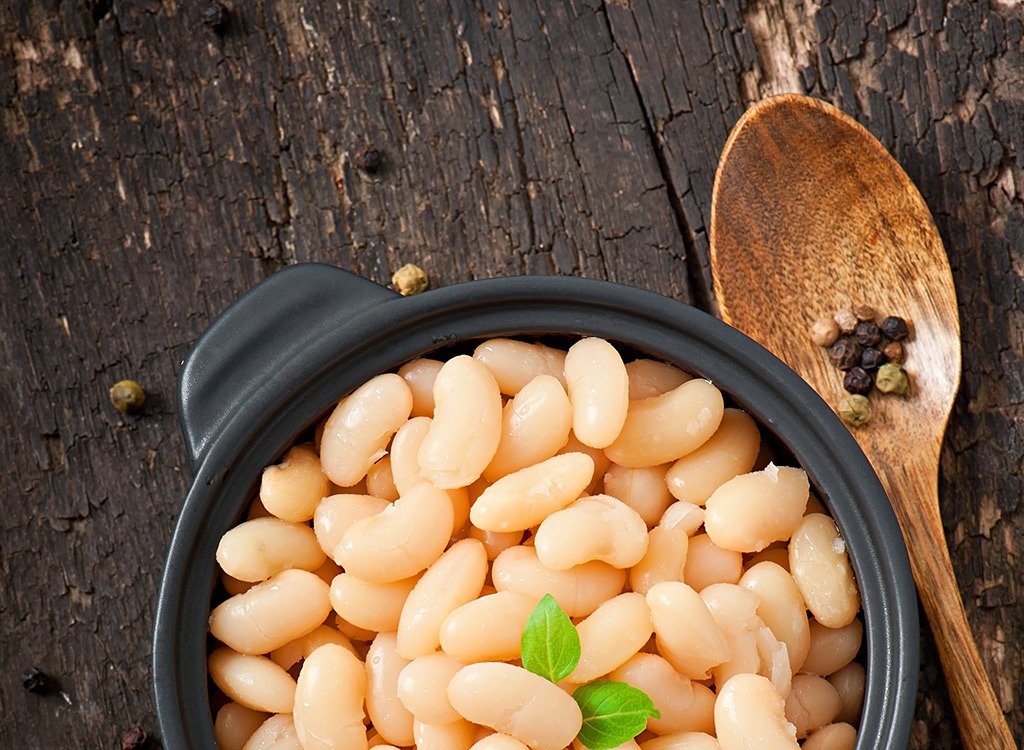
You’ve likely added high fiber foods to your diet because they’re superstars when it comes to helping you feel full, eat less, and lose weight. Now, we know that these foods can also help you reduce your risk of breast cancer. According to Harvard researchers, for every 10 grams of fiber a woman eats per day, her breast cancer risk slashes by 7%. And navy beans just happen to pack nearly 10 grams of the belly-filling macro in just half a cup! Experts believe that the fiber helps reduce high estrogen levels in the blood, which are strongly linked with breast cancer development.
Walnuts
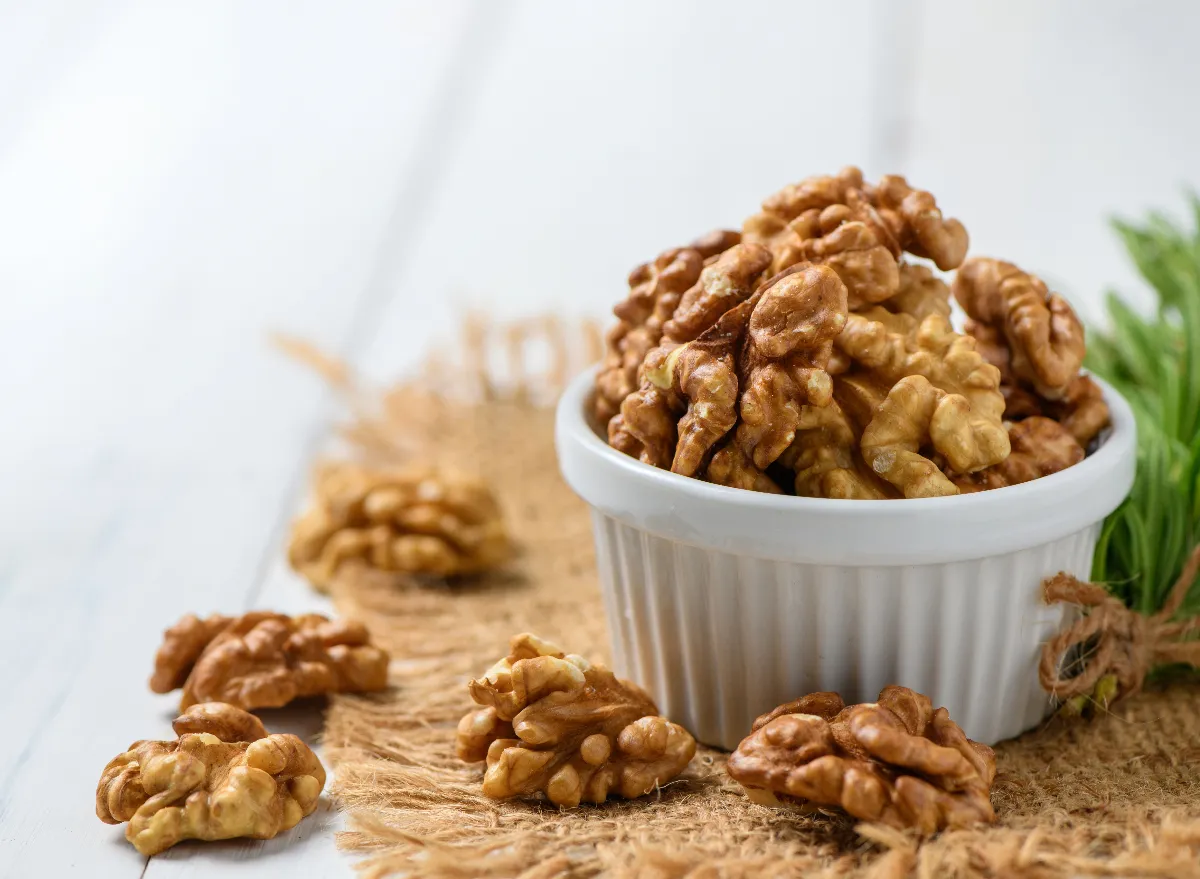
Not only can these heart-shaped nuts help fight fatty food cravings, they can also fend off cancer cells. Walnuts contain gamma tocopherols, a vitamin that stops the activation of Akt—the enzyme essential for cancer to thrive—without affecting non-cancerous cells. Not only that, these creamy nuts also boast phytosterols, which can help regulate estrogen levels in both men and women, as well as slow the growth of breast cancer cells by blocking estrogen receptors. In fact, a study in the journal Nutrition and Cancer discovered that when mice were given the human equivalent of two ounces of walnuts for a month daily, tumor growth in the walnut-eating mice slowed down to half the rate of the tumors in the mice who didn’t eat walnuts.
Cooked Tomatoes
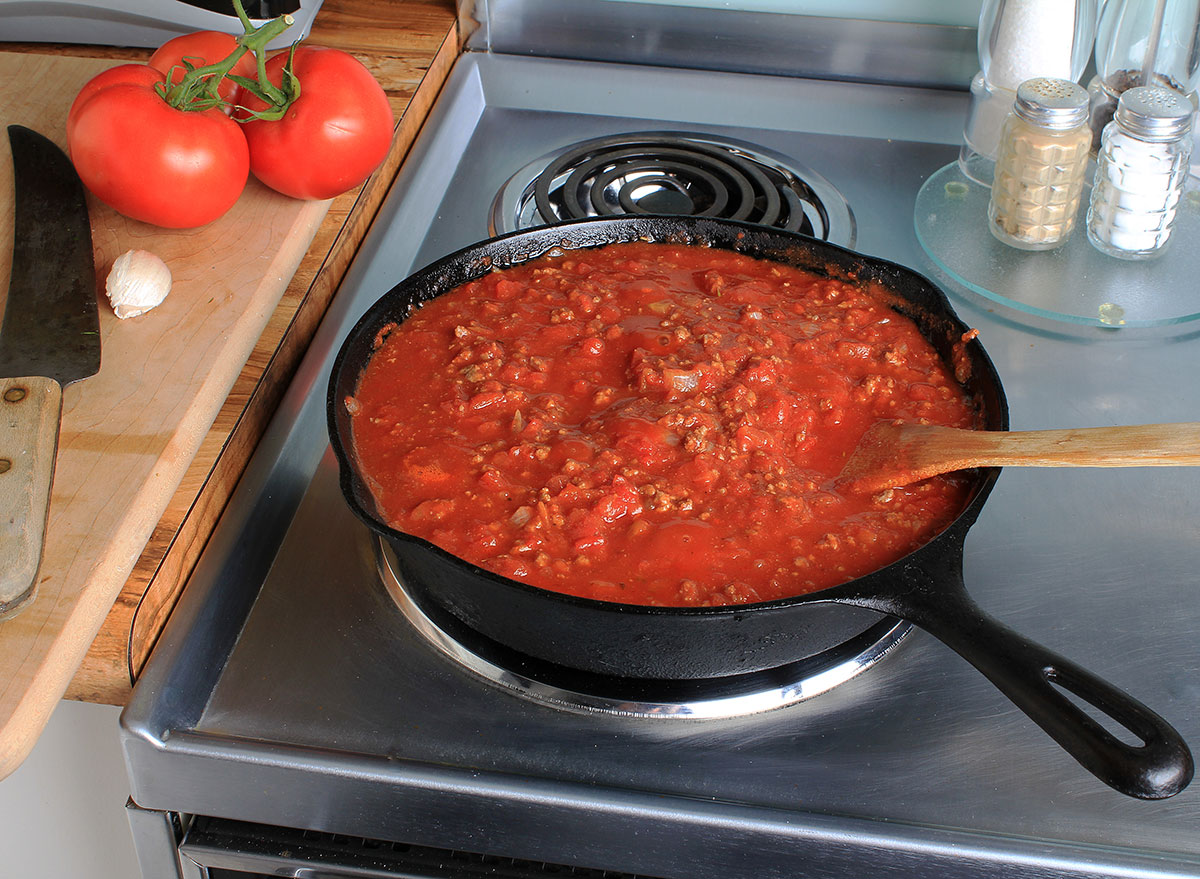
From pasta sauce to ketchup and cocktail mixers, tomatoes have given us some of our favorite pantry staples. But did you know that they also help reduce women’s risk of developing breast cancer? A study in the Journal of the National Cancer Institute found that women with the highest levels of lycopene, a carotenoid found in tomatoes, had a 22% decreased risk of developing cancer, while women with the highest levels of carotenoids, in general, had a 19% lower risk.
Sweet Potatoes

Sweet potatoes are another reddish veggie that’s rich in carotenoids—specifically, beta-carotene. The same Journal of the National Cancer Institute study found that women with the highest levels of beta-carotene in their blood had a 17% lower risk of developing certain types of breast cancer. Experts speculate that carotenoids contain compounds that help regulate cell growth, defense, and repair. To get the most bang for your carotenoid buck, scientists recommend blanching and then seasoning these potatoes.
Pomegranates

Cracking open a pomegranate is probably one of the best things you can do for your health and flat belly goals. The fiber-rich arils (the edible, bursting seeds in the fruit) can actually help your body inhibit the growth of hormone-dependent breast cancer, a study published in Cancer Prevention Research found. The ellagic acid in pomegranates can potentially protect against breast cancer by suppressing estrogen production and preventing the growth of cancer cells. They’re not the only health food staples rich in ellagic acid; cranberries, pecands, raspberries, strawberries, and walnuts are, too.
Tea
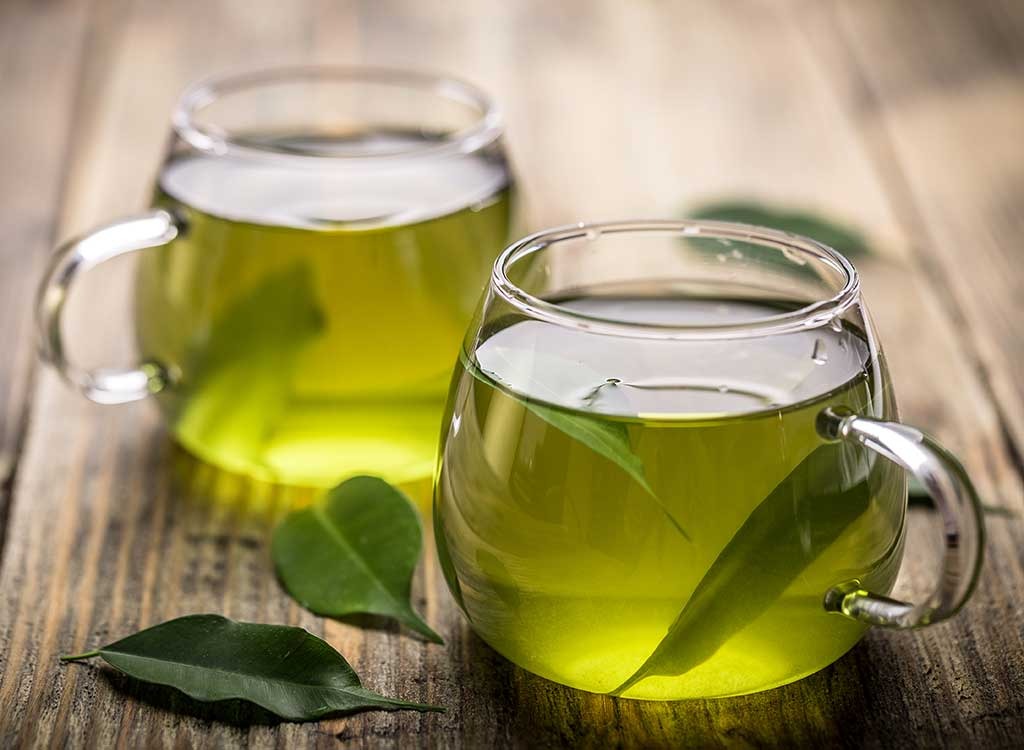
Tea is teeming with antioxidants called polyphenols, which also just happen to boast anti-breast cancer properties. A small study conducted by the National Institute of Health’s (NIH) National Cancer Institute found that Japanese women who drank at least one cup of green tea a day had less cancer-causing urinary estrogen than women who didn’t sip. Just make sure to avoid the bottled stuff, and brew your own batch at home. It would take 20 bottles of mass market, ready-made tea to reap the same amount of polyphenols that are in just one home-brewed mug.
Broccoli
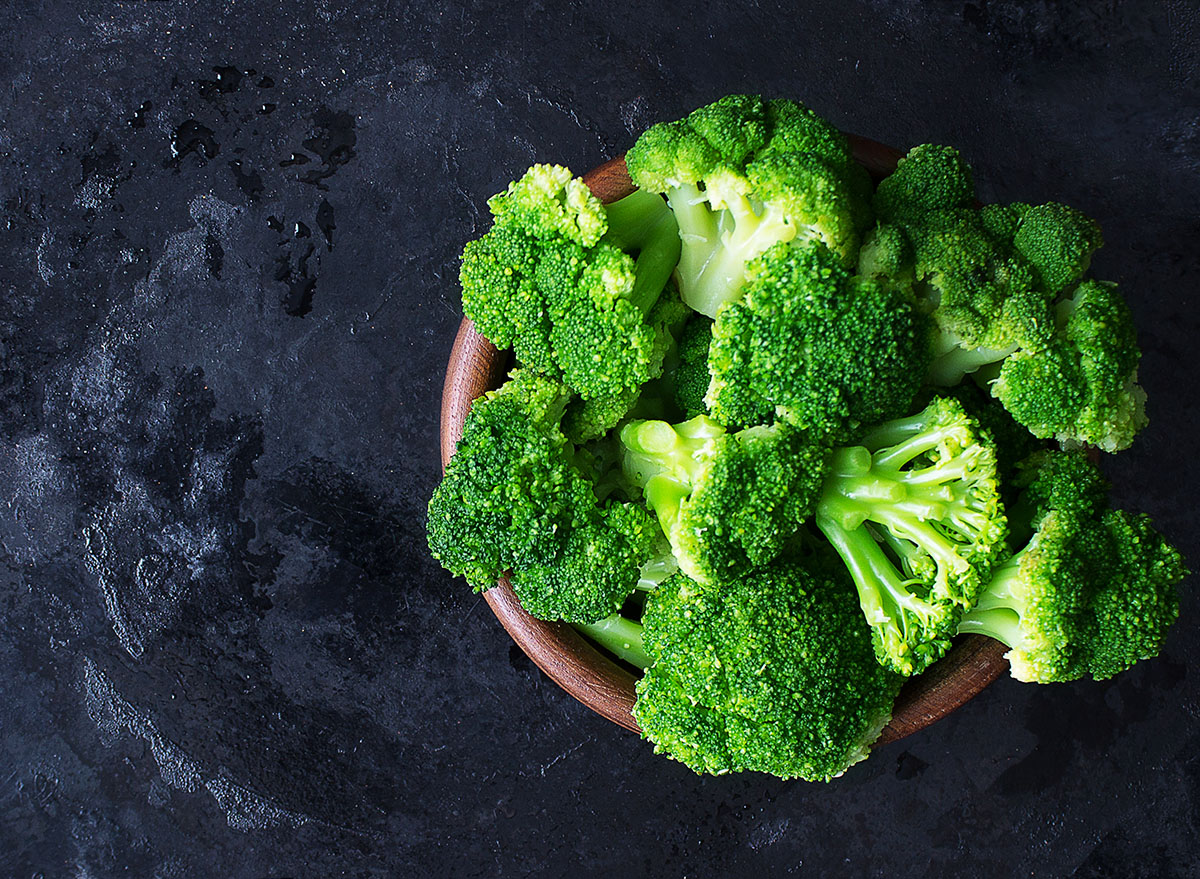
Broccoli may not have been your dinner side of choice when you were a kid, but since your palate has likely matured since then, we’re going to fill you in on a little secret. Sulforaphane, an anti-inflammatory compound found in the veggie, has been shown to zap away breast-cancer-causing chemicals and inhibit the growth of breast cancer cells. Wondering how to reap the most benefits out of your broccoli? Steam it! Cooking the veggie in vapor will also ensure it’s flat belly-friendly, too.
Wild Salmon

After analyzing a plethora of international studies, the BMJ journal published a report that revealed this shocking statistic: Women who consumed the highest amount of fish-based omega-3 fatty acids were 14% less likely to get diagnosed with breast cancer than those who avoided the seafood. And there’s more good news: You don’t have to always add salmon to your menu to reap the benefits. Other fish high in omega-3s include sardines, mackerel, cod, and anchovies.
Vitamin-D-Fortified Organic Milk
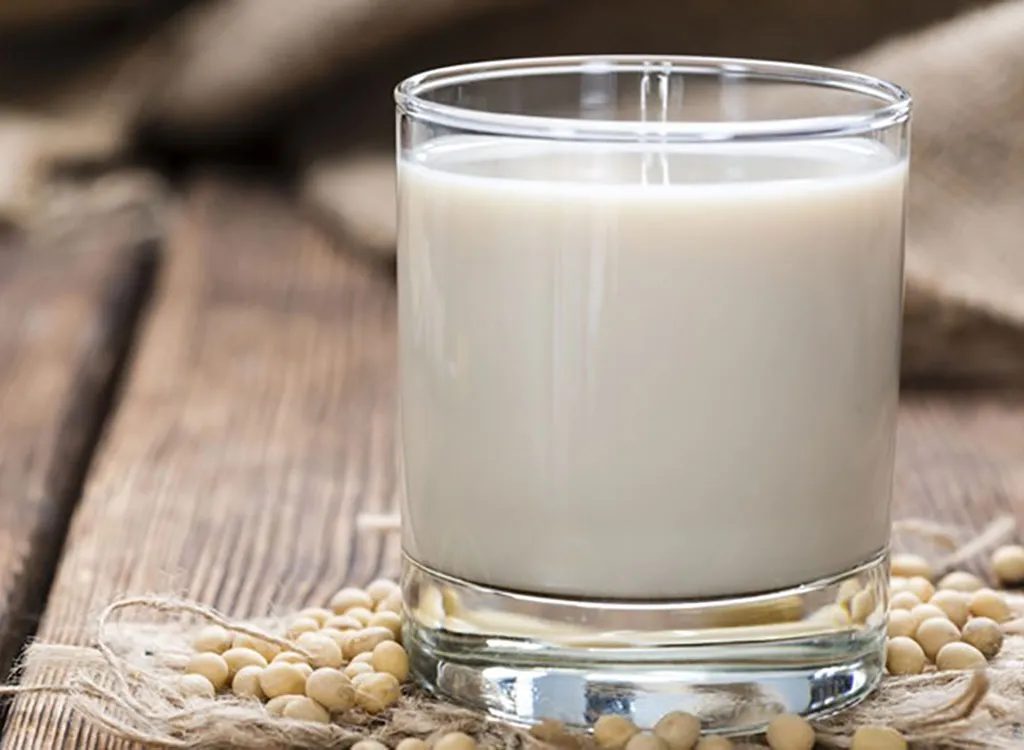
A study published in Cancer Prevention Research found that vitamin D could reduce breast cancer risk in women by up to 50%. Another more recent study associated low levels of vitamin D in the blood with a heightened rate of breast cancer tumor progression. To stop cancer in its tracks, start your mornings by splashing vitamin-D-enriched organic milk into your coffee or dousing a bowl of healthy cereal with the stuff.
Olive Oil

The Mediterranean diet isn’t only helpful when you’re trying to boost overall health and weight loss—it’s also got another fab benefit. A study published in JAMA Internal Medicine found that women who followed a Mediterranean diet rich in extra-virgin olive oil had a 68% lower risk of developing breast cancer compared to women who consumed corn oil. Experts believe that the olive oil’s anti-inflammatory phenolic compounds and oleic acid were responsible for curbing cancer cell growth.
Eggs
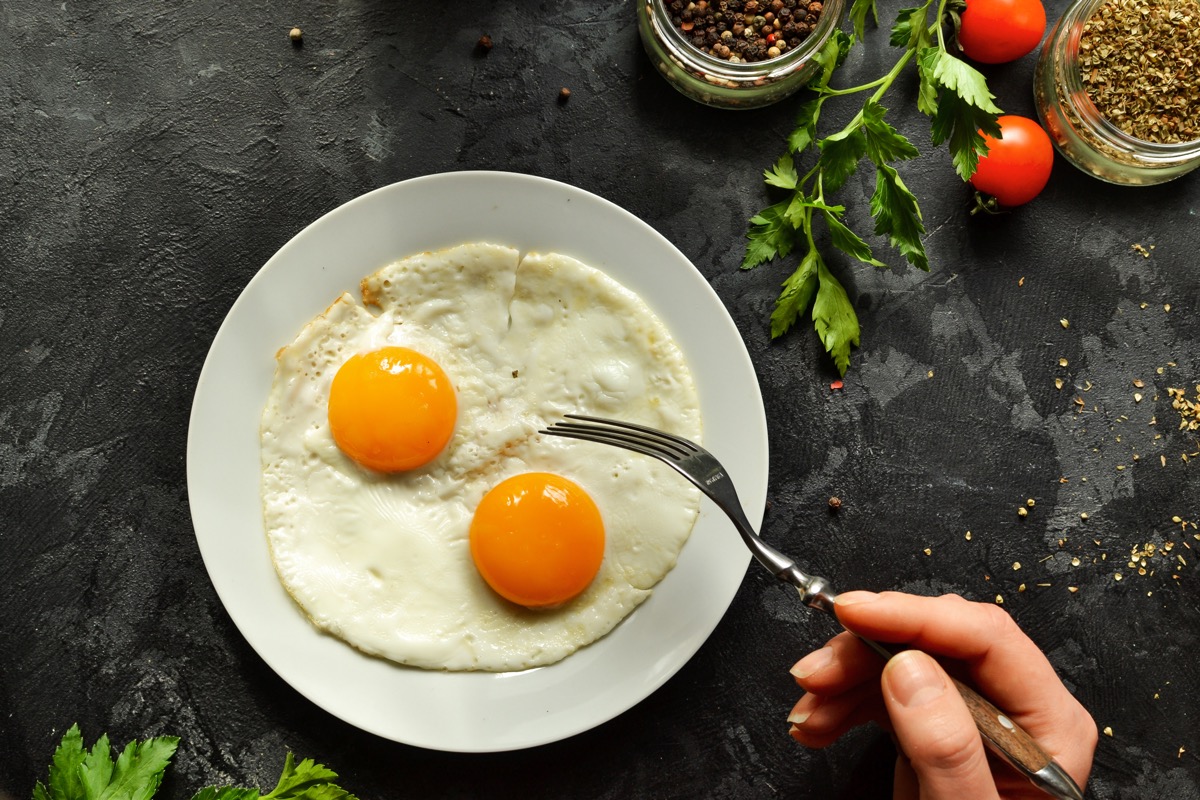
Eggs are packed with a unique nutrient known as choline, which has been shown to speed up weight loss, as well as lower your risk of breast cancer. According to a study published in The Journal of the Federation of American Societies for Experimental Biology, women who consumed the highest amount of choline had the lowest risk of breast cancer.
Spinach
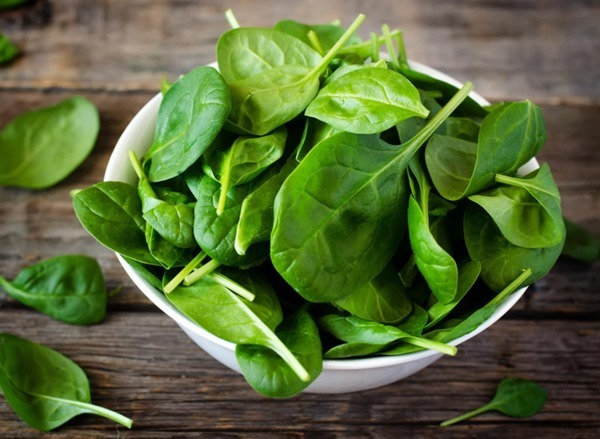
When it comes to leafy greens, we definitely have a lesson to learn from Popeye. Spinach is a potent source of lutein and zeaxanthin, two carotenoids that have resulted in a 16% reduced rate of breast cancer if consumed abundantly. This salad green is also rich in DNA- strengthening folate, a B vitamin essential during pregnancy. A study published in the journal PLoS ONE linked low levels of folate to an increased breast cancer risk.
Turmeric
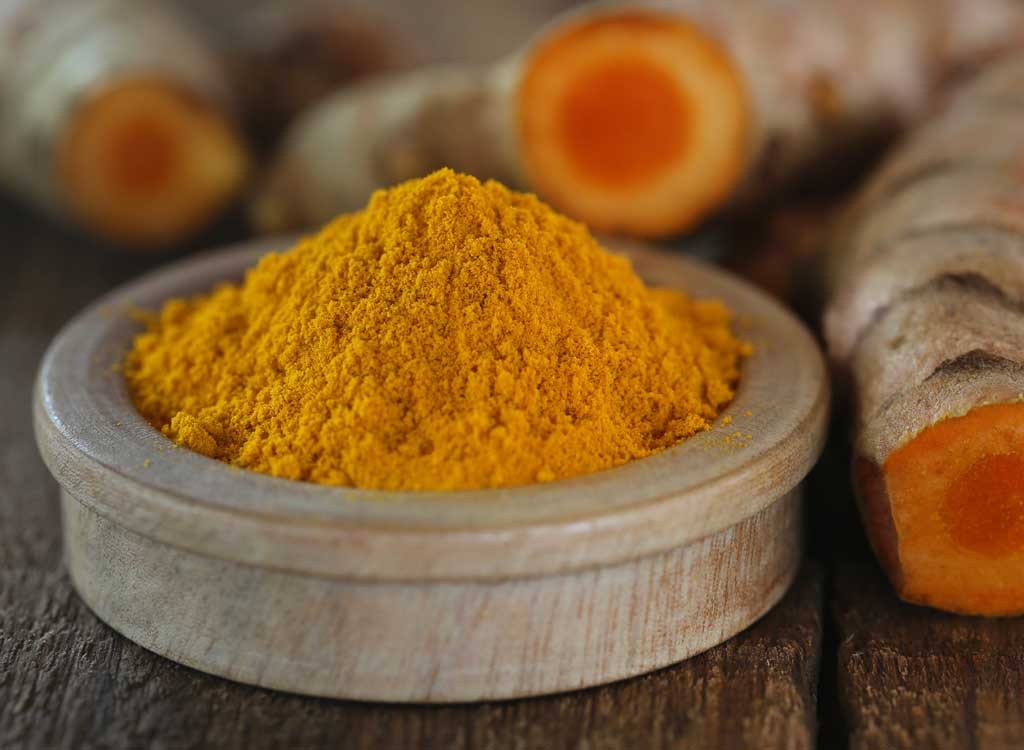
Curcumin, the main antioxidant polyphenol in this root spice, is also jam-packed with chemopreventive properties. A study in Molecular Oncology showed that anti-inflammatory curcumin can help deter breast cancer cell formation. Now, there’s a good reason to clink glasses and cheers to a turmeric latte.
Coffee
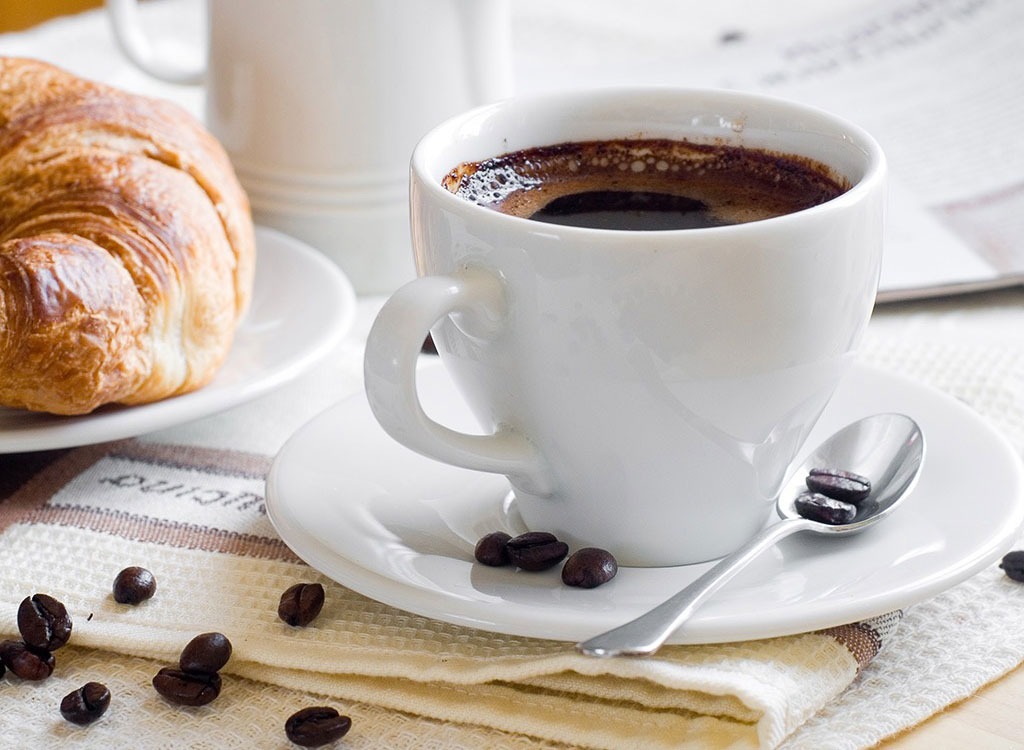
Java drinkers rejoice: You may actually help lower your risk of antiestrogen-resistant estrogen-receptor (ER)-negative breast cancer by brewing a cup. A 2011 study in the journal Breast Cancer Research discovered that women who often guzzled down a cup of joe had a lower incidence of ER-negative breast cancer than women who preferred other bevs. “One possibility is that coffee’s antioxidants protect cells from damage that can lead to cancer,” one of the study authors, Jingmei Li, PhD, explained.
Peaches

Here’s some peachy-keen news: A study found that a higher intake of peaches was associated with a lower risk of breast cancer among post-menopausal women. To reap the same chemopreventive benefits, munch on two to three peaches per day.
Chickpeas
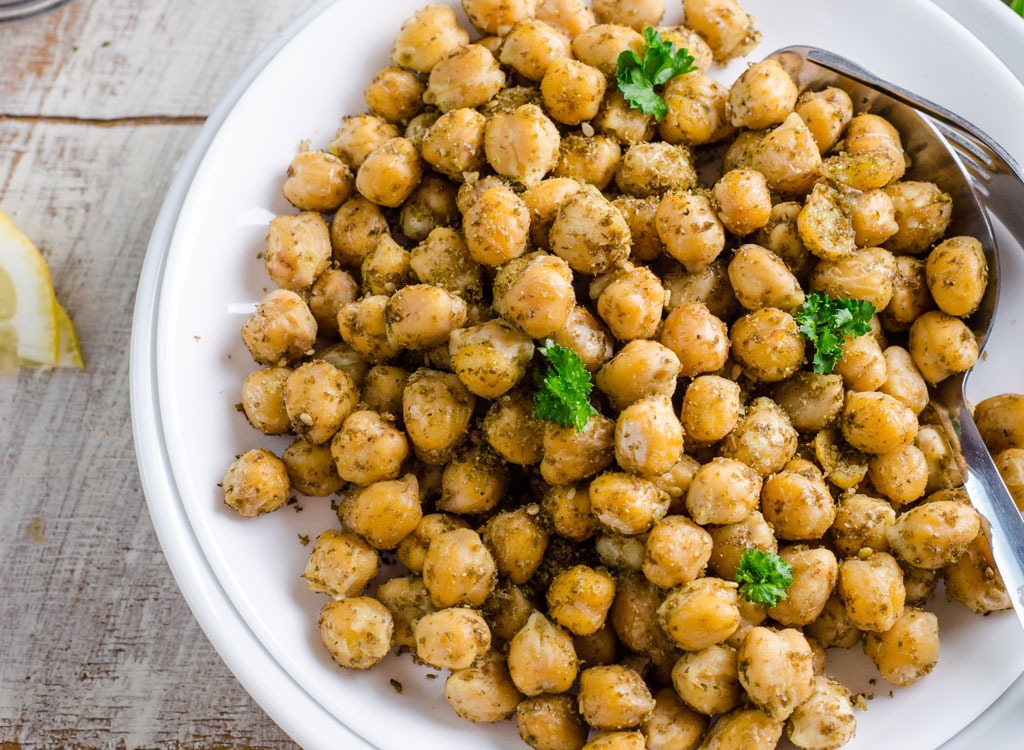
The main ingredient in our fave dip ever (none other than hummus!) can also help you battle breast cancer. A study published in the Nutrition and Cancer journal discovered that chickpeas contain anti-cancer agents called protease inhibitor concentrates.
Blueberries
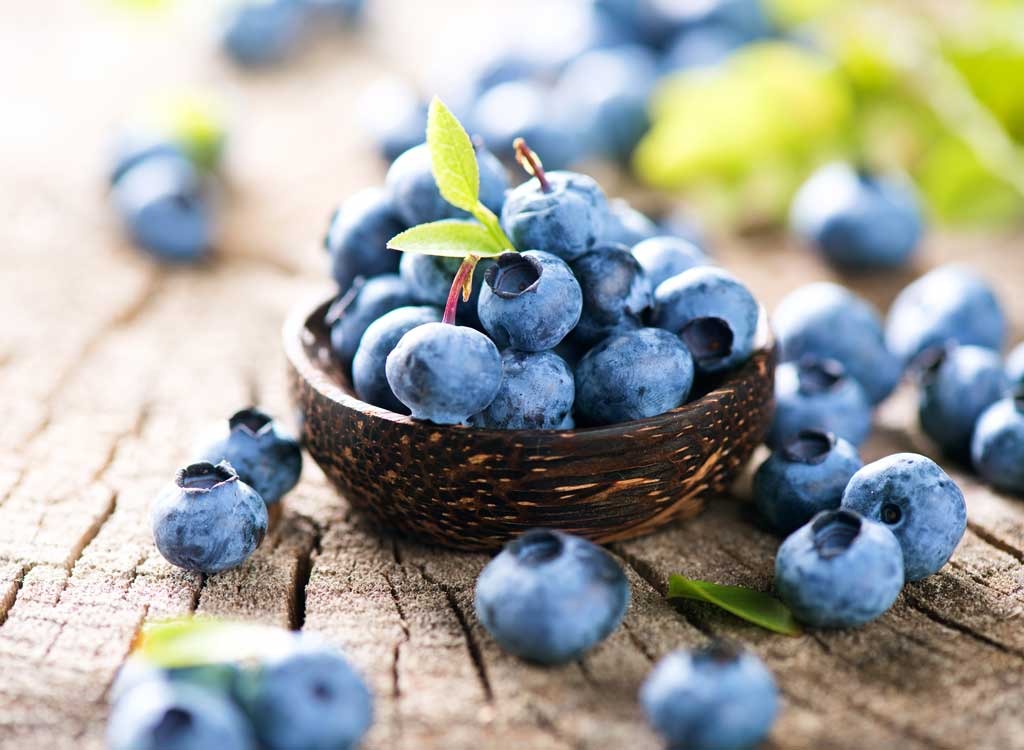
If you’re craving something sweet but don’t want to undo your weight loss wins, grab a handful of antioxidant-rich blueberries. A review published in the journal Anti-Cancer Agents in Medicinal Chemistry expressed that these sweet blue orbs “show promise as effective anti-cancer agents” due to their ability to prevent cancer cells from forming, as well as increasing healthy cells’ ability to kill off cancerous ones.
Carrots
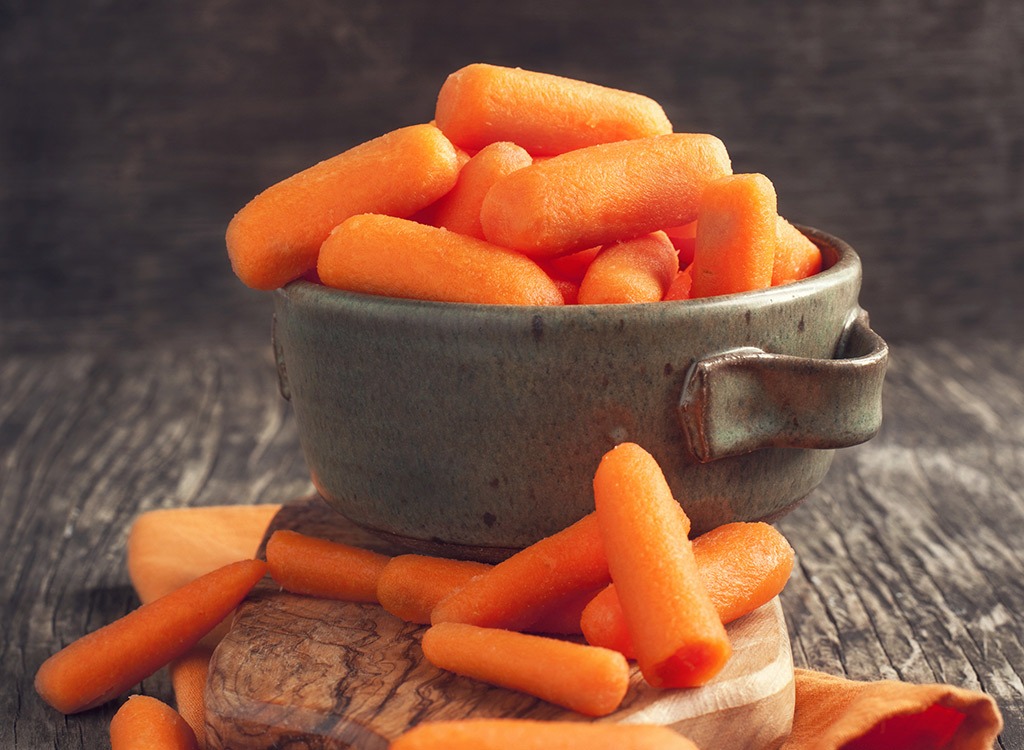
Who knew that bag of baby carrots could help fend off one of the scariest serial killers in America? According to research published in The American Journal of Clinical Nutrition, out of 33,000 women, those who consumed the highest amount of carotenoids, which were present in their blood, showed a 18 to 28% lower risk of breast cancer. If you’re tired of dipping carotenoid-rich carrots into hummus—another cancer-fighting food—try adding them to one of our 26 Flat Belly Soups.
Strawberries
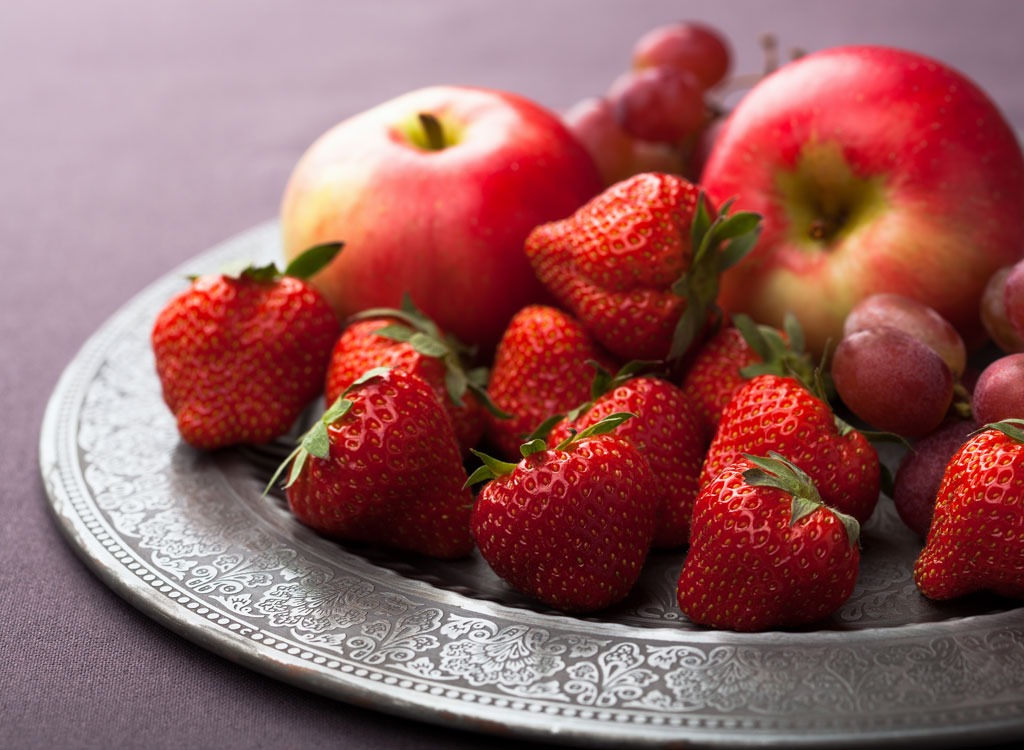
Not only do they make the perfect vessel for melted chocolate, strawberries can also help fight cancer, according to a study in Scientific Reports. “We have shown for the first time that strawberry extract, rich in phenolic compounds, inhibits the proliferation of breast cancer cells in in vitro and in vivo models,” Maurizio Battino, co-author of the paper, said in a press release.
Oranges

Here’s another to peel an orange during snack time: The bright fruit is brimming with chemopreventive properties, according to a study published in Journal of Breast Cancer. It found that a high intake of citrus fruits can potentially decrease your risk for breast cancer.
Goji Berries
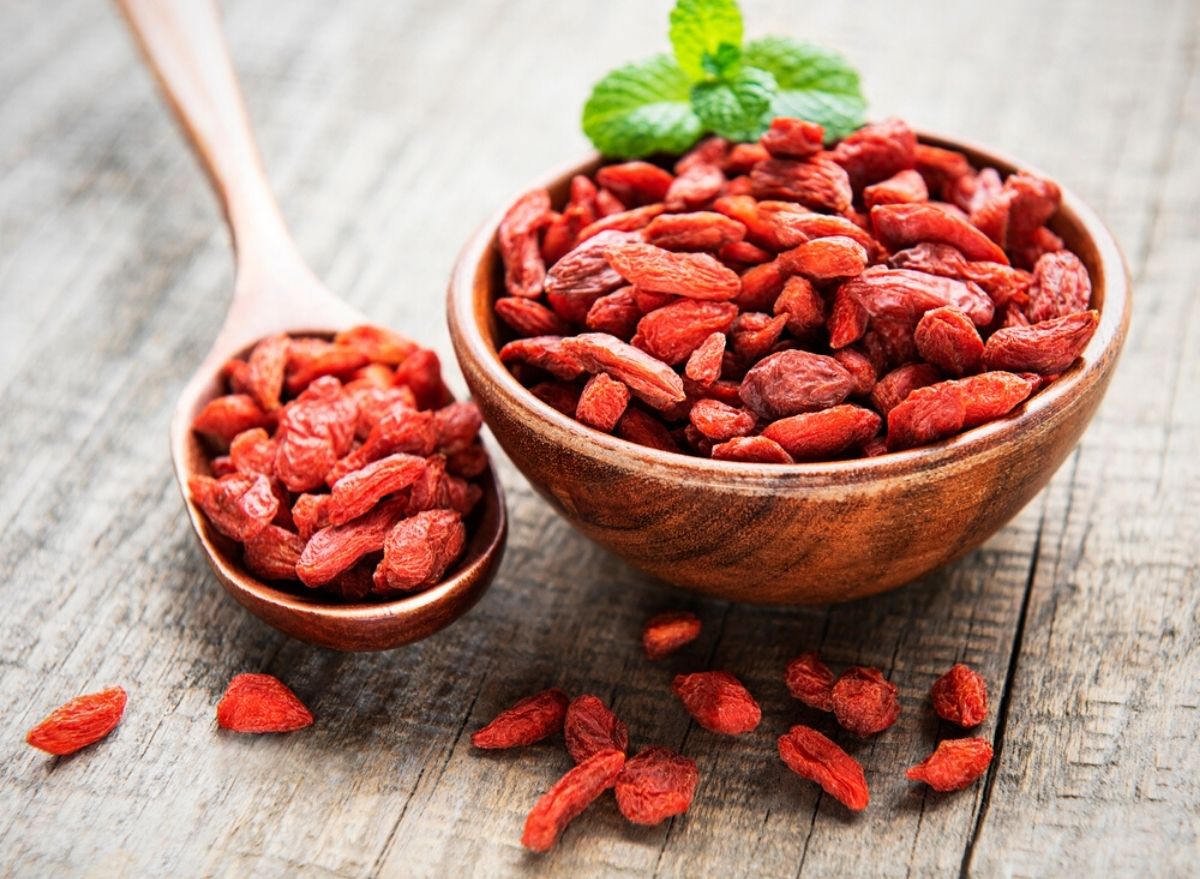
Much like many of our go-to berries, goji berries are packed with anti-inflammatory antioxidants that can help fight cancer. Research published in the journal Natural Product Research found that goji berry extract prevented the maximization of breast cancer cells.
Pecans
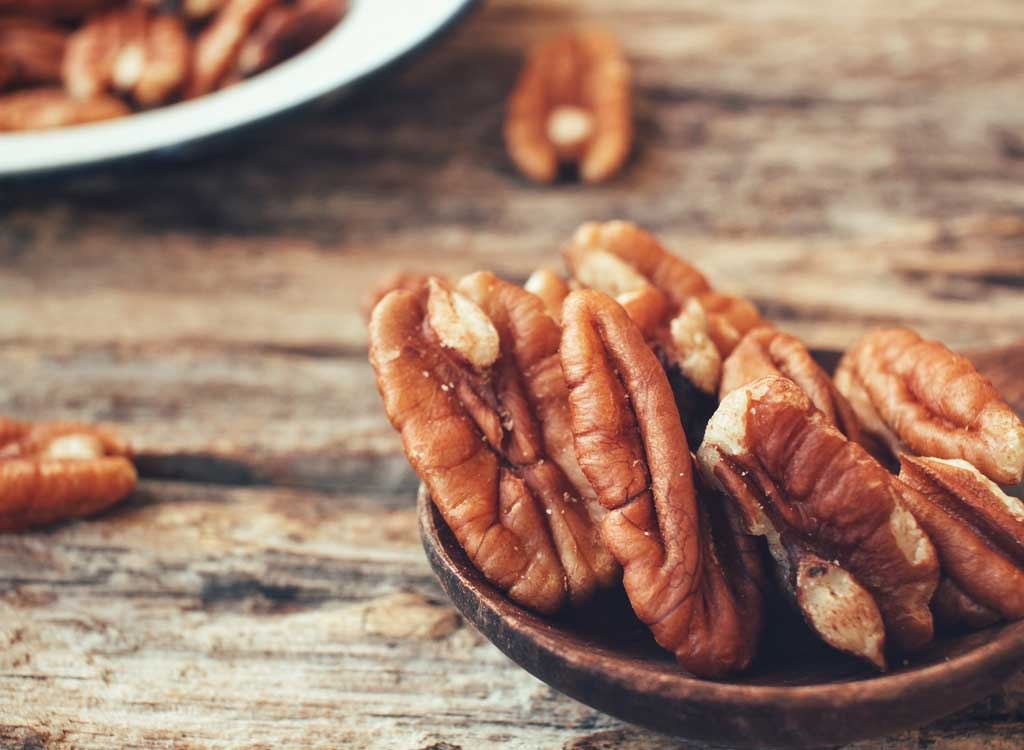
Pecans may build the base of our favorite Thanksgiving pie, but these rich nuts can help ward off cancer, too. Pecans are packed with the polyphenol ellagic acid, which has “anti-carcinogenic actions,” according to the journal Cancer Biology & Medicine. Just don’t rely on fulfilling your pecan intake via sugar-laden desserts—eating these nuts raw or roasted is your best bet.
Cauliflower
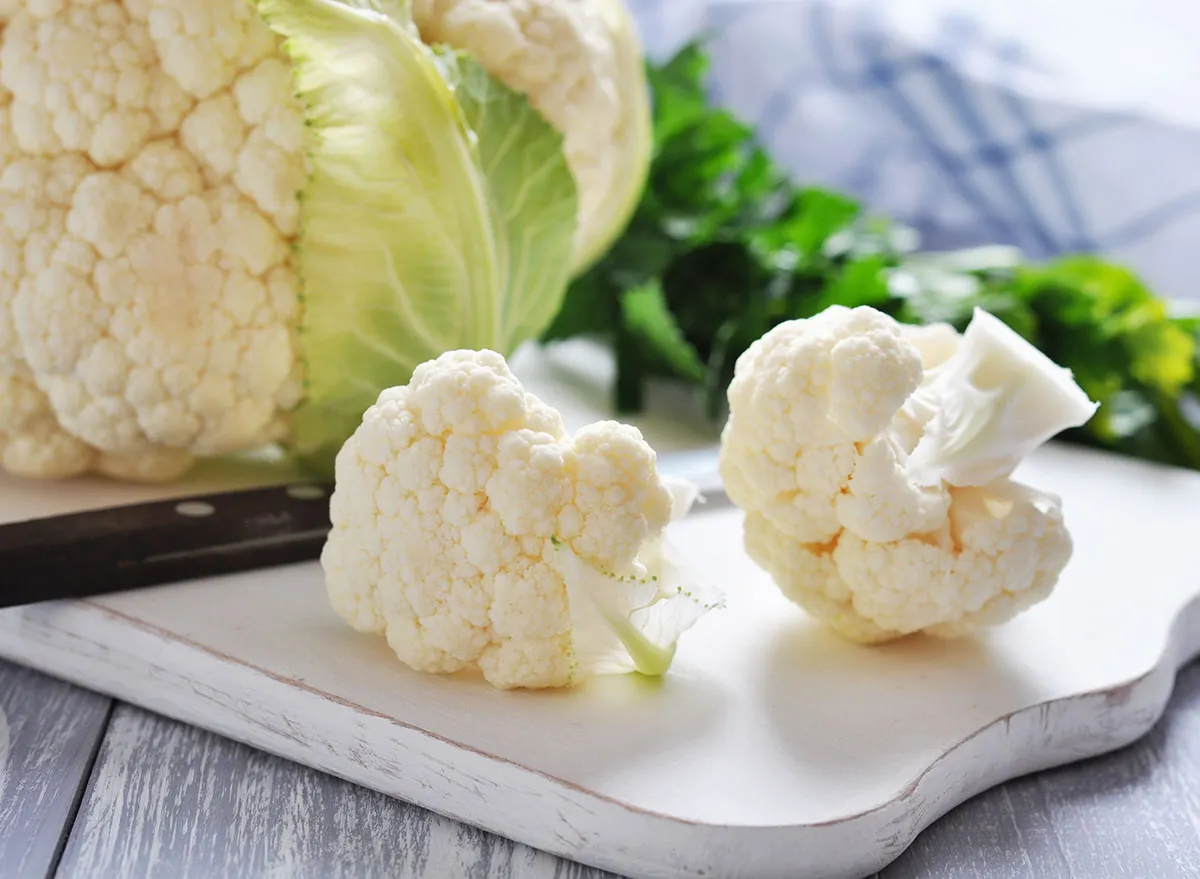
When you chop, chew, and digest cauliflower, its glucosinolates break down and form biologically active compounds known as indoles and isothiocyanates. According to the National Cancer Institute, this cancer-preventive duo can deter the development of breast, colon, liver, lung, and stomach cancers.
Cherries

Cherries aren’t only a great snack for better sleep—they’re also deemed one of the best fruits to eat to prevent breast cancer. According to a study published in the Pakistan Journal of Pharmaceutical Sciences, cherries can minimize the risk of cancer as well as other chronic diseases. Now that’s a perfect reason to blend the stone fruit into a Zero Belly Smoothie!
Cabbage
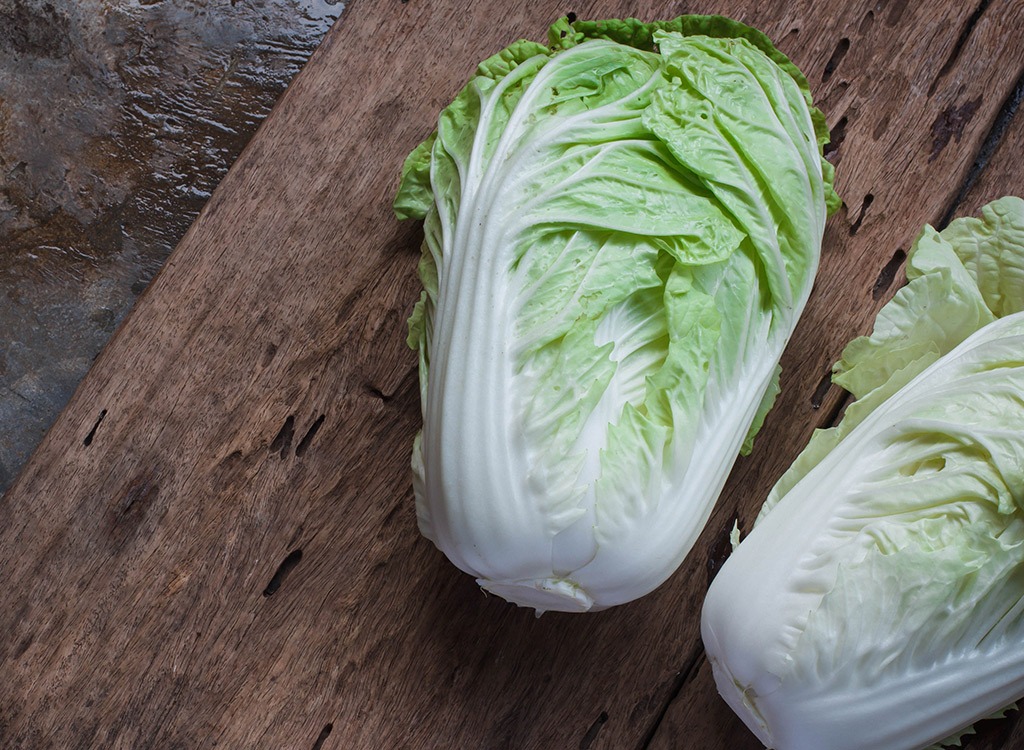
Remember those cancer-fighting indoles and isothiocyanates found in cauliflower? Well, cabbage is packed with these compounds, too. Wondering how to use this versatile veggie? Get creative in the kitchen by adding it to salads or experimenting with Asian-inspired noodle dishes.
Bok Choy
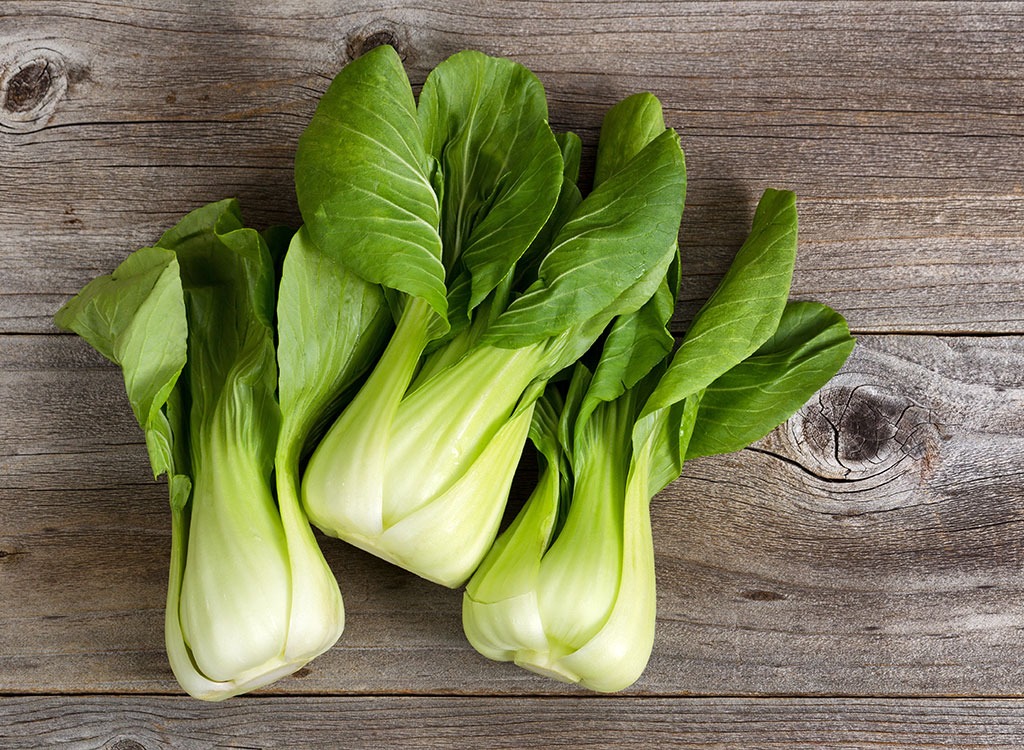
Bok choy, a delicate Chinese cabbage, can make a savory side dish as well as it can help prevent cancer cell growth, much like its cruciferous cousins. And bok choy’s got another bonus: This veggie’s solid iron content landed it a spot on our list of foods that prevent hair loss!
Flaxseed
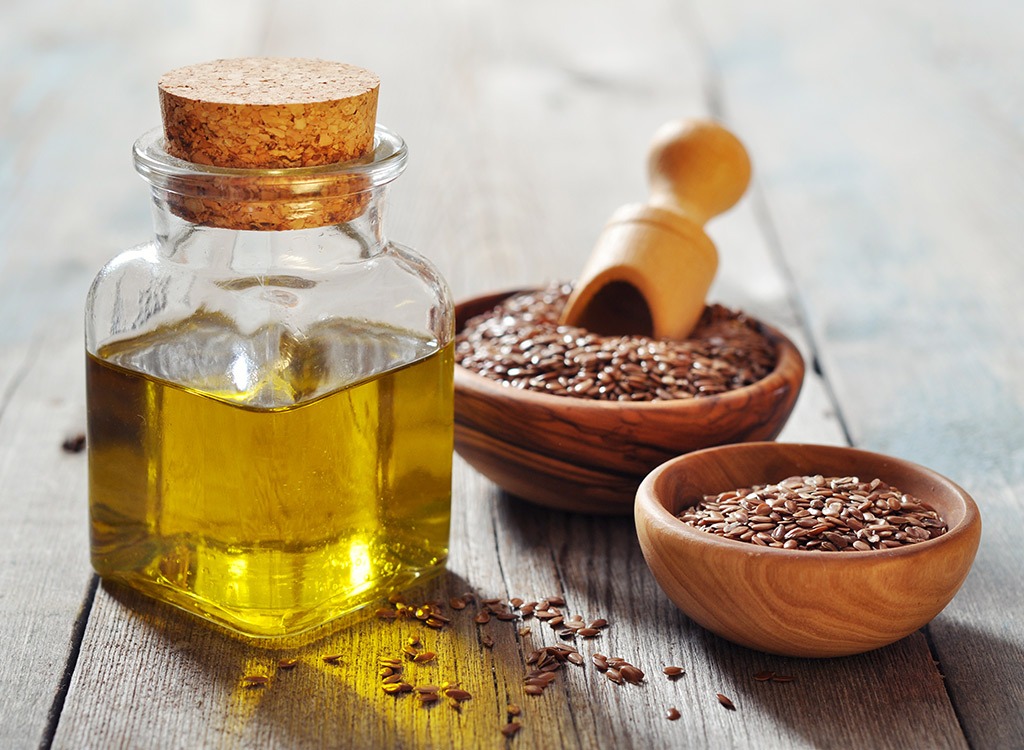
Flaxseeds are almighty when it comes to lowering blood pressure and cholesterol, as well as preventing the big C. A study in the journal Clinical Cancer Research found that “dietary flaxseed as the potential to reduce tumor growth in patients with breast cancer.” We recommend buying these versatile seeds whole and freshly grinding them before each use to ensure you’re getting the maximum nutrients.
Asparagus

A study published in the Indian Journal of Pharmacology found that fiber-rich asparagus induced antioxidant activity, which has the potential to prevent cancer. Good thing these savory spears are delicious both steamed or roasted!
Soy
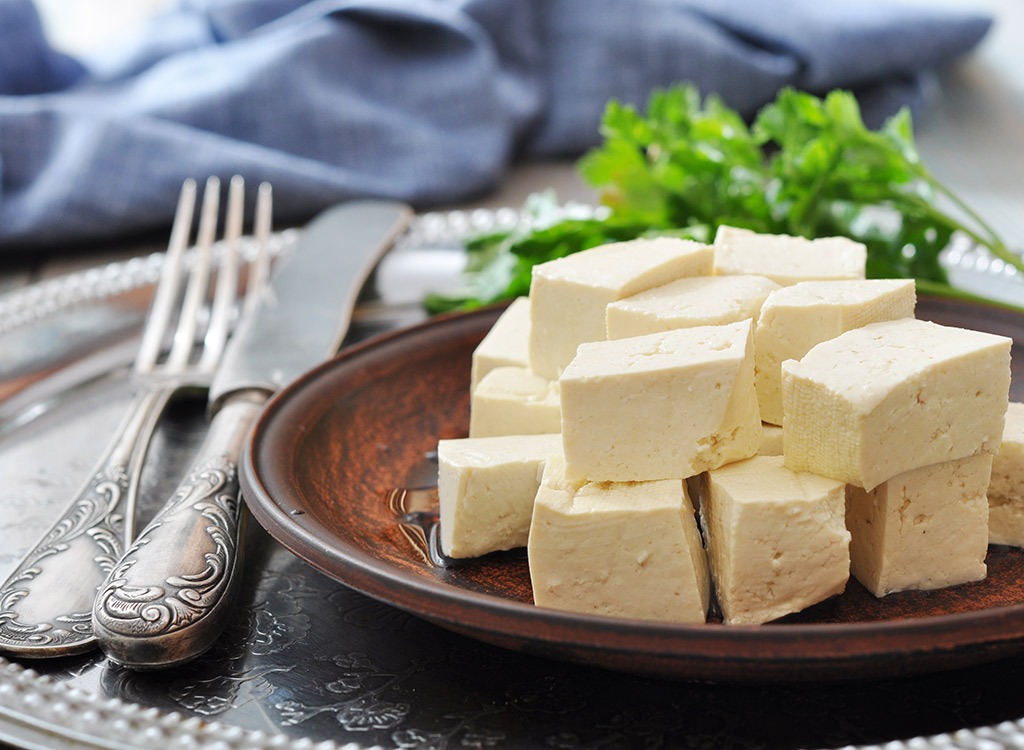
Many people associate soy with cancer due to their phytoestrogens, estrogen-mimicking plant compounds, which have been shown to fuel cancers in lab settings. On the flip side, human studies haven’t proved that high-soy diets are linked to a maximized breast cancer risk. In fact, it’s quite the opposite: Experts believe that the soy’s isoflavones have the ability to block more potent natural estrogens in the blood. The American Cancer Society’s dietary guidelines deem that eating soy products is not only safe but “may even lower breast cancer risk.” Studies in the Journal of Clinical Oncology and American Journal of Epidemiology show that eating more of these bean-based foods improved survival rates and decreased risk of lung cancer, as well as reduced risk of prostate cancer. While miso paste is a great pick, you can also add fermented tofu, tempeh, natto, soy sauces, and organic edamame to your diet.
Citrus Zest
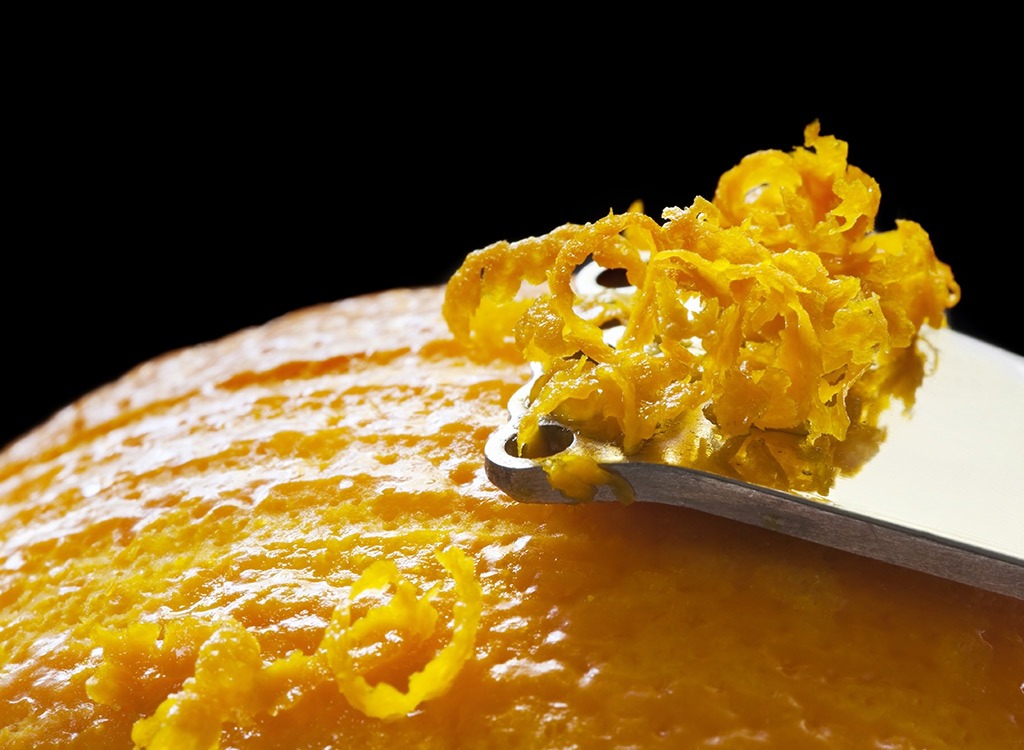
Most of us prefer to peel our citrus fruits before noshing on them, but their potent peels should totally be consumed, too. Citrus peels can boost the body’s production of detoxifying enzymes. Regularly adding the zest to your meals can help reduce the risk of squamous-cell skin cancer by 30%, as well as reduce the size of existing tumors, according to University of Arizona researchers.
“Atlantic” or “Boston” Mackerel
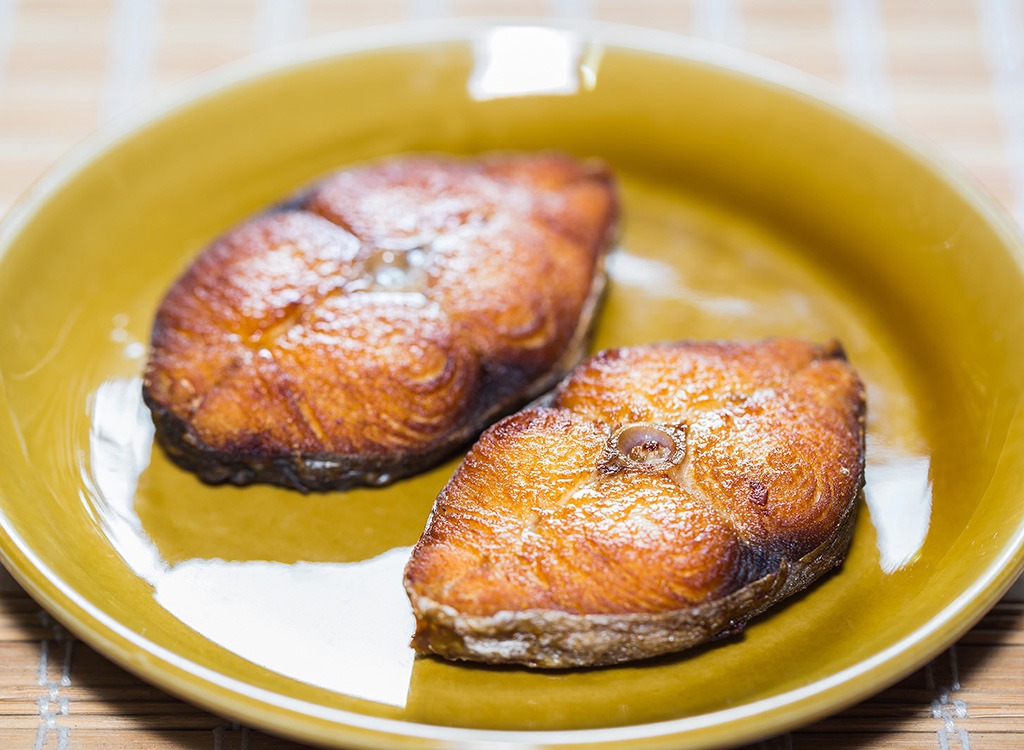
Heart-healthy herring, mackerel, and wild salmon are packed with protein, as well as anti-cancer properties, according to a Harvard study. Researchers found that among about 48,000 men, those who consumed the fatty fish over three times a week were 40% less likely to develop advanced prostate cancer than those who consumed the fish twice a month, thanks to the omega-3s and vitamin D content. What’s more, increased vitamin D intake was linked to a 50% reduced breast cancer risk in women, according to Proceedings of the American Association for Cancer findings. Researchers also believe that vitamin D can also boost survival rates among lung cancer patients and can protect against colorectal cancer.
Artichokes
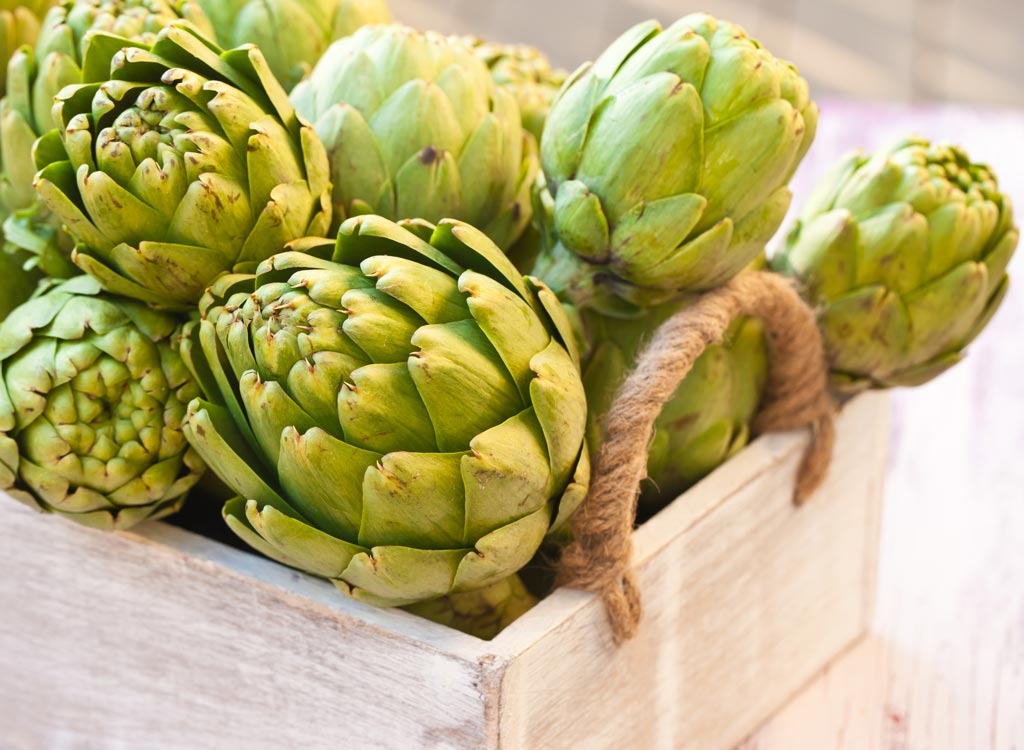
Artichokes can help you flatten those abs thanks to their impressive fiber count (7 grams per medium veggie!). But they also boast some more impressive benefits: A study in the Journal of Cellular Physiology found that polyphenols in artichokes can prevent breast cancer.
Wine

Who knew that ending your day with a glass of vino doesn’t only zap the stress away; it also prevents esophageal cancer. According to a study in the journal Gastroenterology, sipping just a single glass of white or red wine can lower your risk of developing Barrett’s Esophagus by 56%. Barrett’s Esophagus, a precursor to esophageal cancer, develops when acid reflux or heartburn damages the esophageal lining permanently.
Butternut Squash
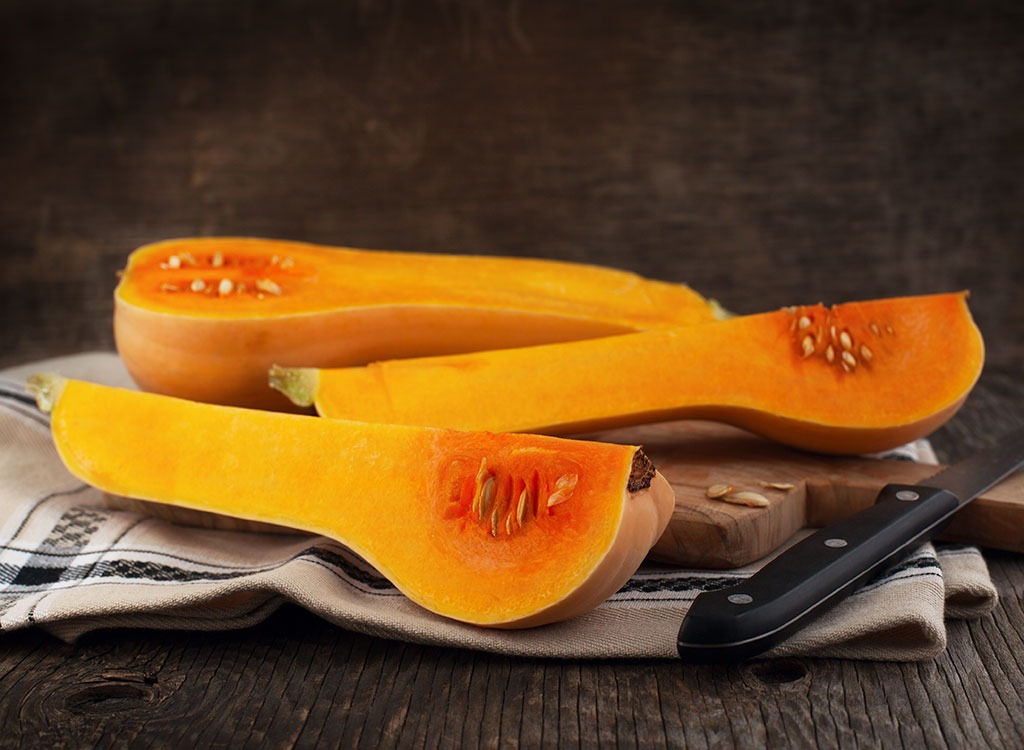
Carotenoid-rich butternut squash can squash a woman’s breast cancer risk by 18 to 28%! A report in the journal Foods revealed that waiting for your squash to ripen completely—when the exterior skin is peach and the inside is a deep, bright orange—before digging into it is the best way to get the full carotenoid punch.
Watermelon
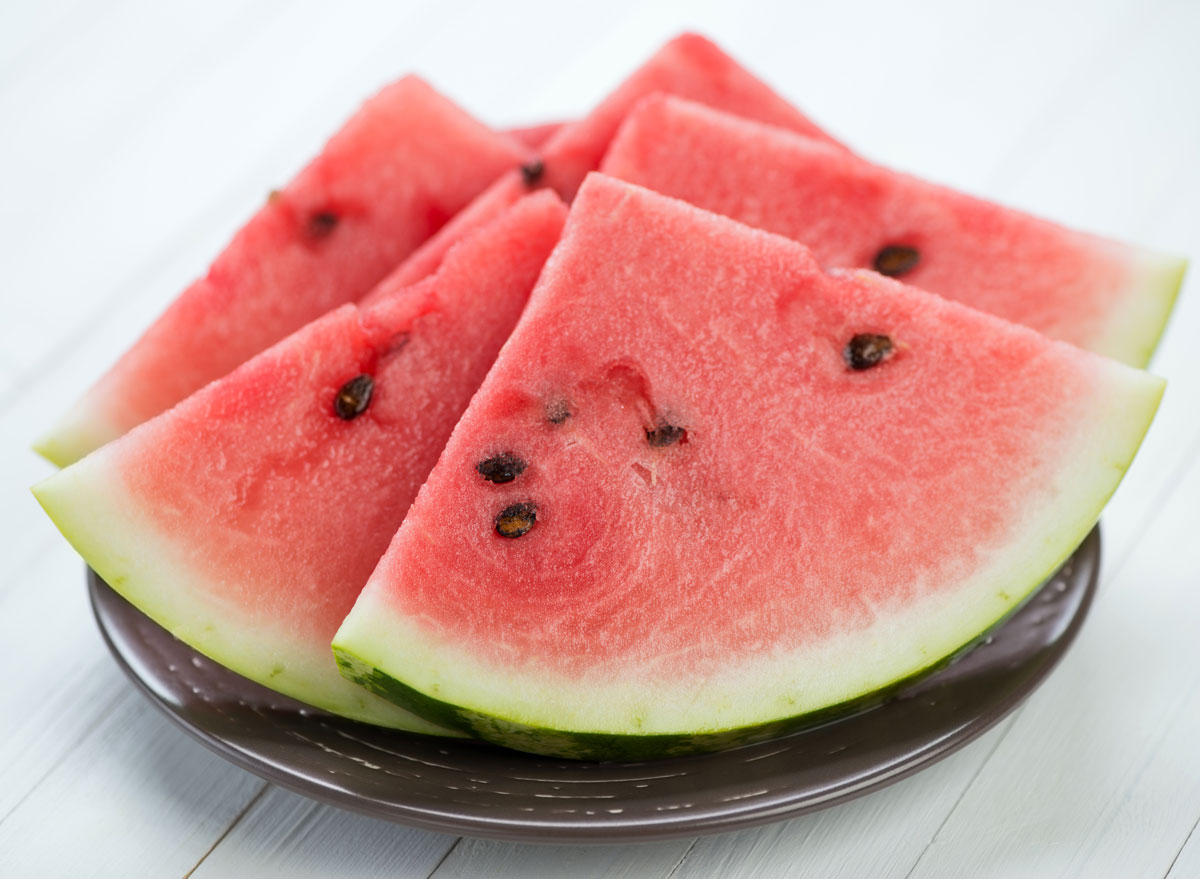
You might want to add watermelon to your grocery list beyond bikini season. “In a laboratory study that tried to mimic human digestion processes to see how carotenoid compounds are affected, researchers calculated that in equal weight portions, more lycopene would be absorbed from raw watermelon than from raw tomatoes,” the American Institute of Cancer Research states.
Papaya Leaf

After digging into the succulent papaya’s inner goodness, don’t toss away the leaves! According to science, dried papaya leaves have been shown to fight cancer. In a University of Florida study, researchers exposed 10 different types of cancer cell cultures to four strengths of papaya leaf extract and found that the fruit slowed down tumor growth in all cultures tested. You can brew a homemade tea by steeping papaya leaves in boiling water to reap their rewards.
Garlic
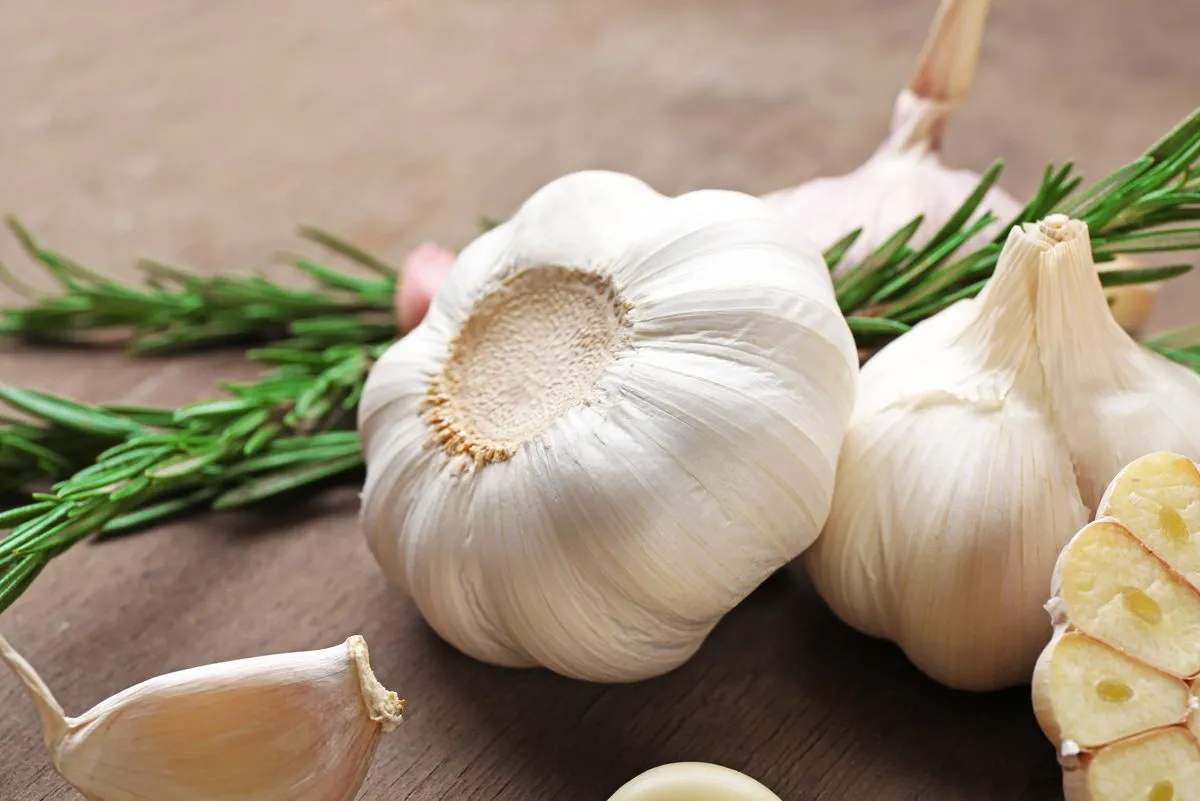
A study in the Japanese Journal of Cancer Research found that frequent intake of garlic can protect against esophageal and stomach cancer. Does it count if we douse our cheese slice in garlic powder? Probably not. You’re better off opting for adding the allium into these 14 Best Crockpot Meals for Weight Loss.
Watercress
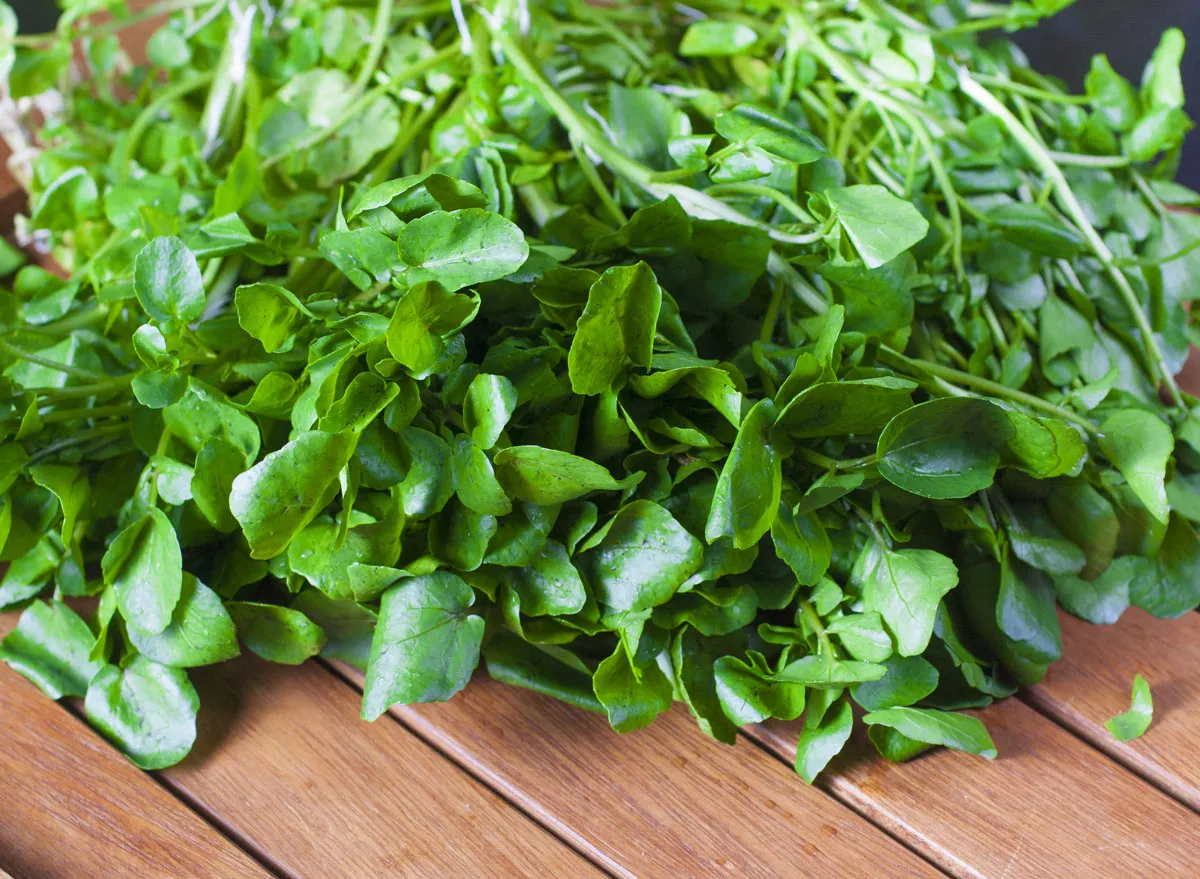
Watercress, brimming with beta-carotene and vitamin K, is a potent cancer-fighting green, according to a study in The American Journal of Clinical Nutrition. Researchers discovered that people who ate just ¾ cup of raw watercress per day boasted less DNA damage and a reduced risk of cancer—changes especially noted in smokers!
Guava
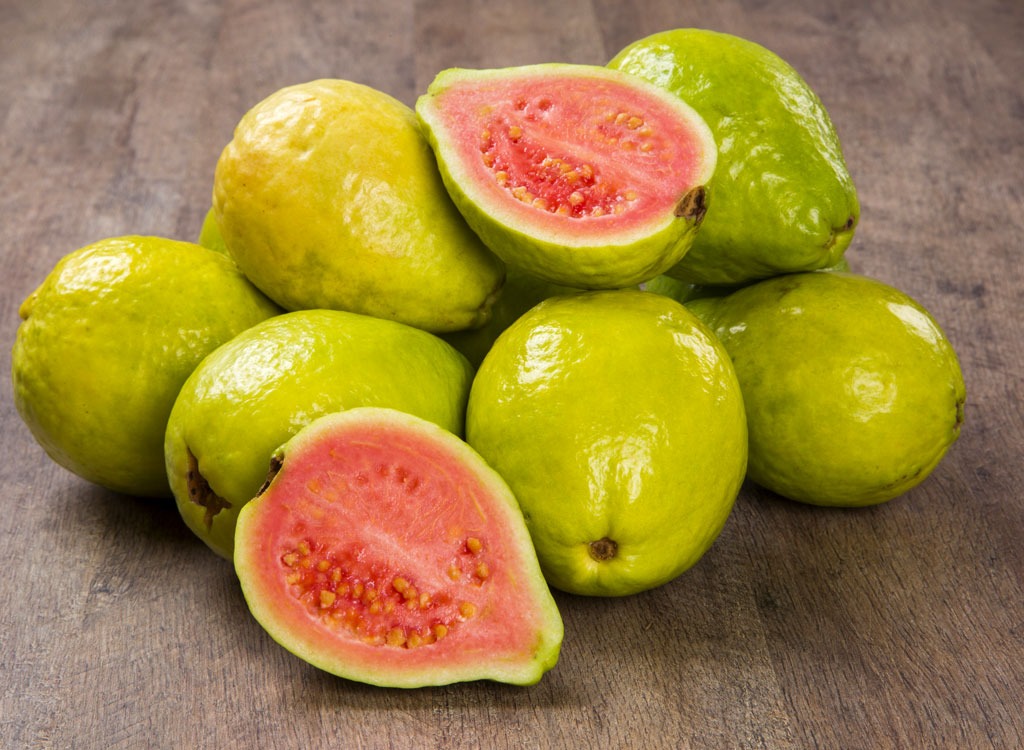
A study in the Journal of Complementary and Integrative Medicine found that combining the guava’s bark, leaf, and root extract prevented B16 melanoma cells from growing in lab rats. Though human trials are needed to confirm these results, we shouldn’t shun this tropical fruit. It’s rich in essential nutrients like flu-fighting vitamin C and DNA-protecting folate.
Persimmons
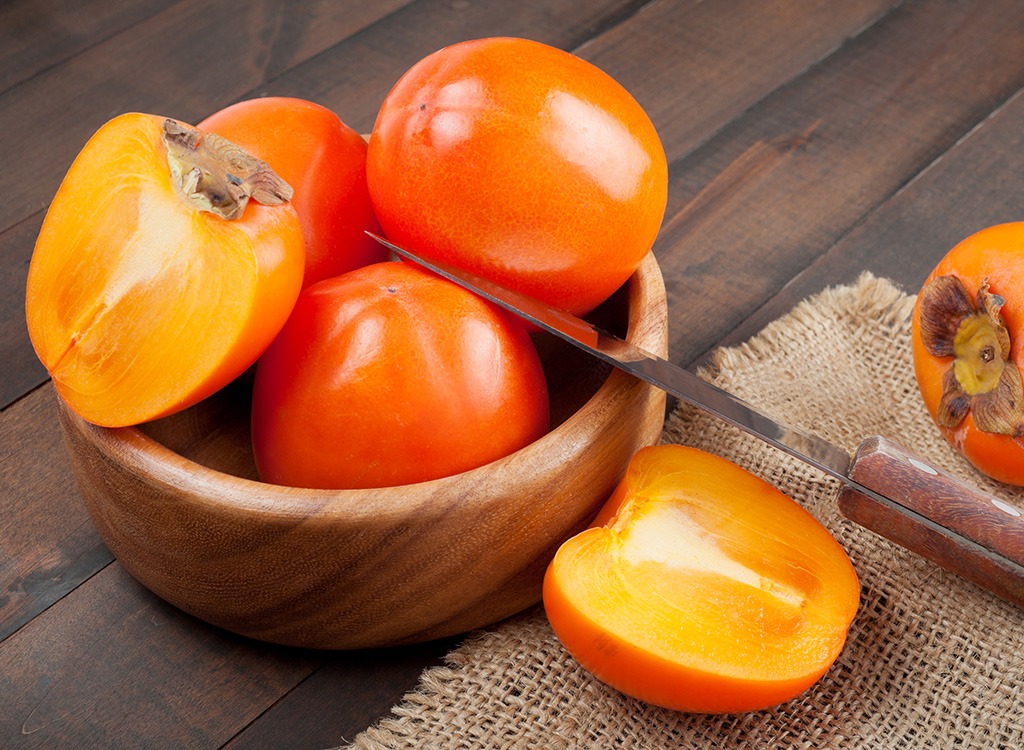
Persimmons aren’t most people’s go-to fruit, mostly because they’re not as ubiquitous as berries or oranges. But they’re no less potent at fending cancer off. A study in Bioscience, Biotechnology, and Biochemistry shed light on the fact that persimmon extract strongly prevented the growth of human lymphoid leukemia Molt 4B cells, as well as induced those cancer cells’ death.
Yogurt
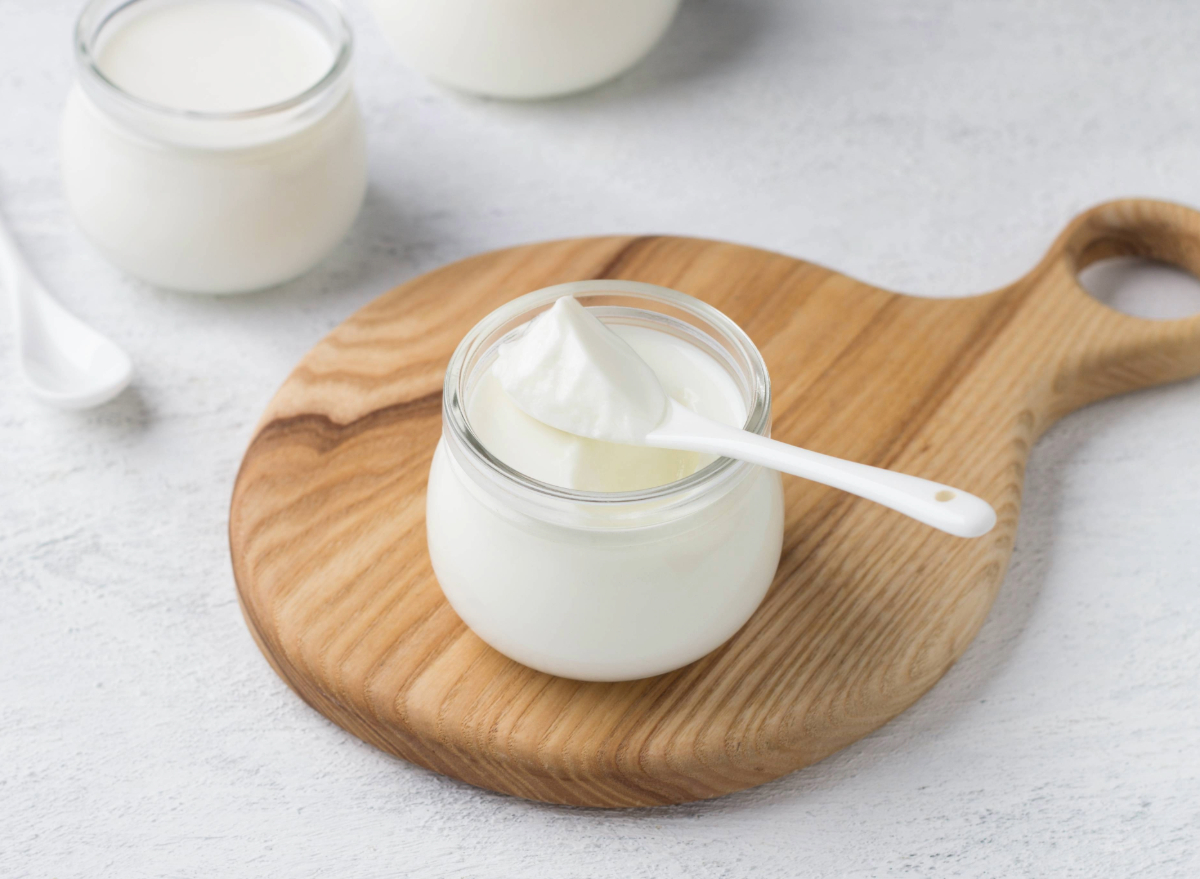
Yogurt, which competes with peanut butter for claiming the top spot of creamiest protein source on the planet, is also a cancer-killer in disguise. A study in The American Journal of Clinical Nutrition found that a high intake of yogurt may lower the risk of developing bladder cancer.
Red Onion
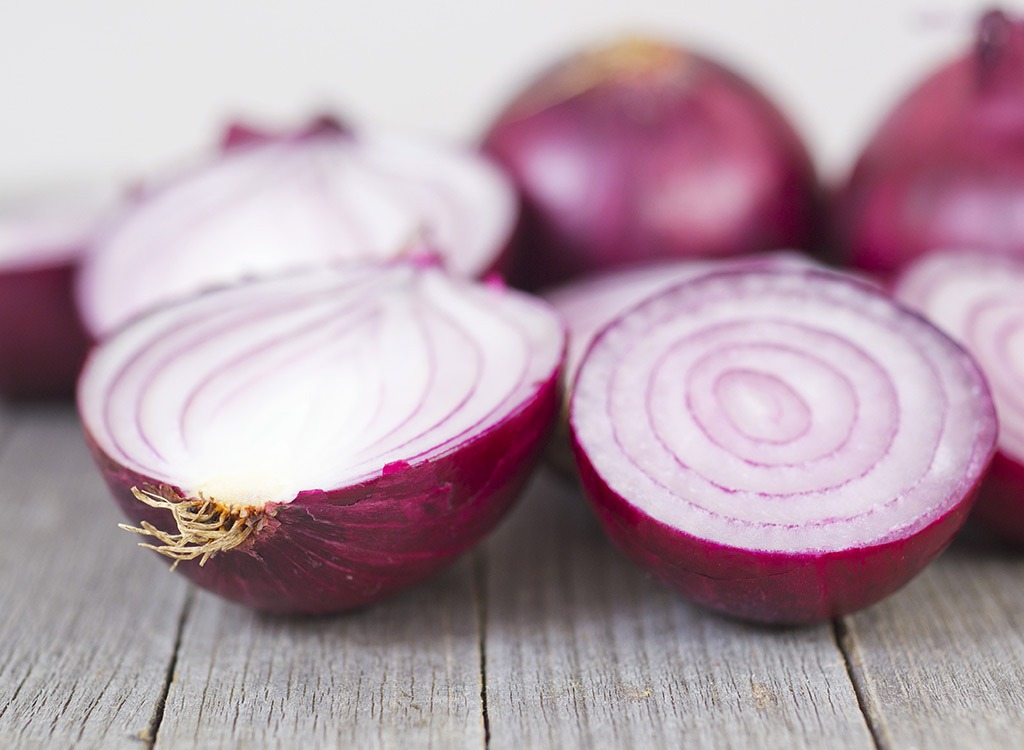
Next time you hit up your local supermarket, make sure that the red onions you grab are grown in Ontario. According to University of Guelph researchers, Ontario-grown red onions pack a solid dose of quercetin and anthocyanin, which can fight off colon and breast cancers. “Onions activate pathways that encourage cancer cells to undergo cell death,” Abdulmonem I. Murayyan, the study’s lead author, said. “They promote an unfavorable environment for cancer cells, and they disrupt communication between cancer cells, which inhibits growth.”
Arizona prickly pear cactus
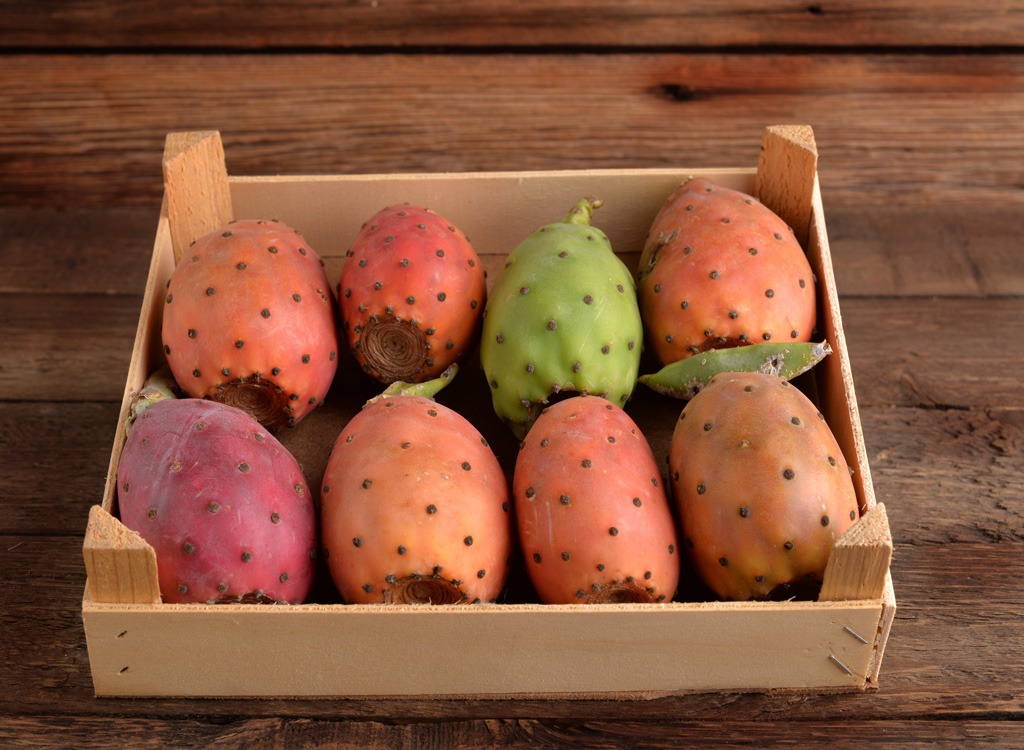
This thorny fruit seems intimidating to bite into, but only before you learn this reassuring finding: Prickly pear extract suppressed tumor growth in mice ,as well as modulated the expression of tumor-related DNA, according to a study in Nutrition Journal.
Almonds
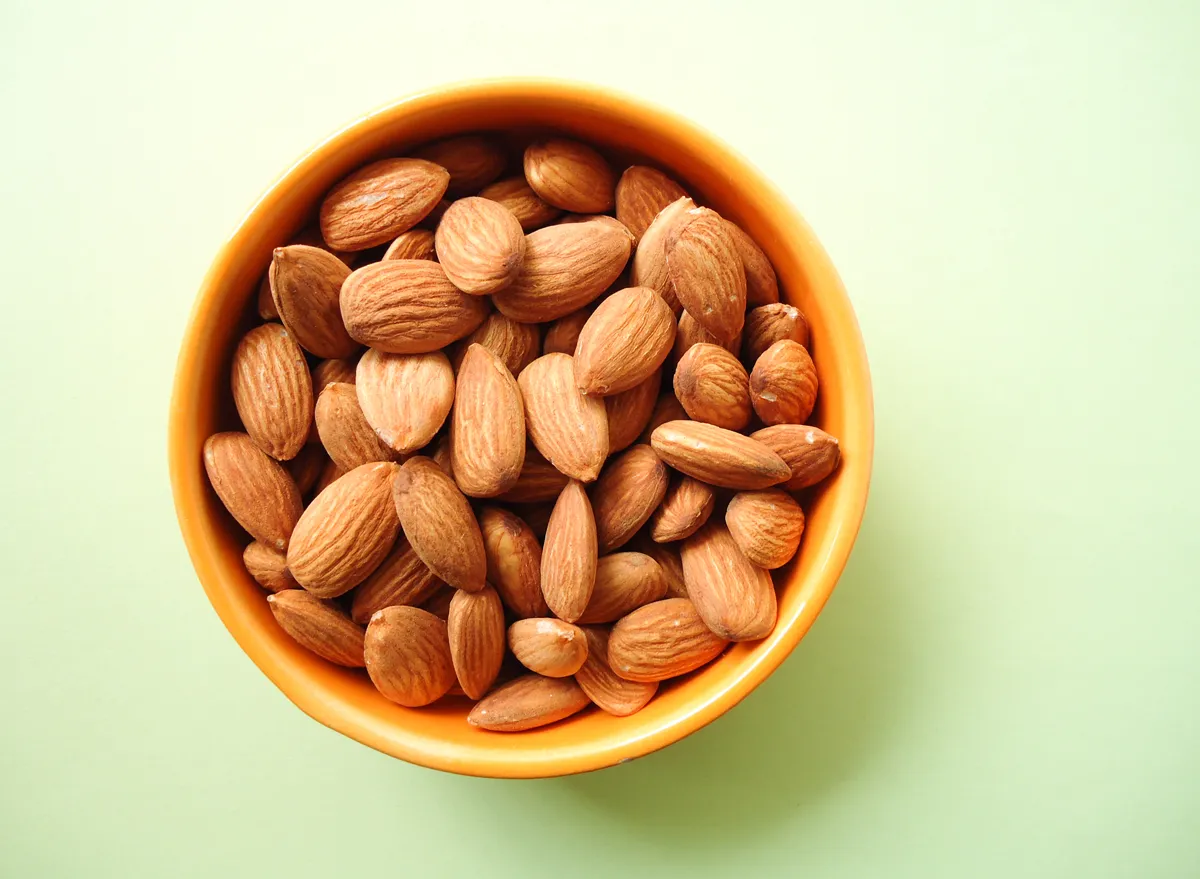
If you need another reason to brown bag some almonds for a mid-afternoon snack or slice and toss them into Greek yogurt, well here it is: A study in the journal Cancer Letters found that the subtly sweet nuts can reduce the risk of colon cancer.
Brazil Nuts
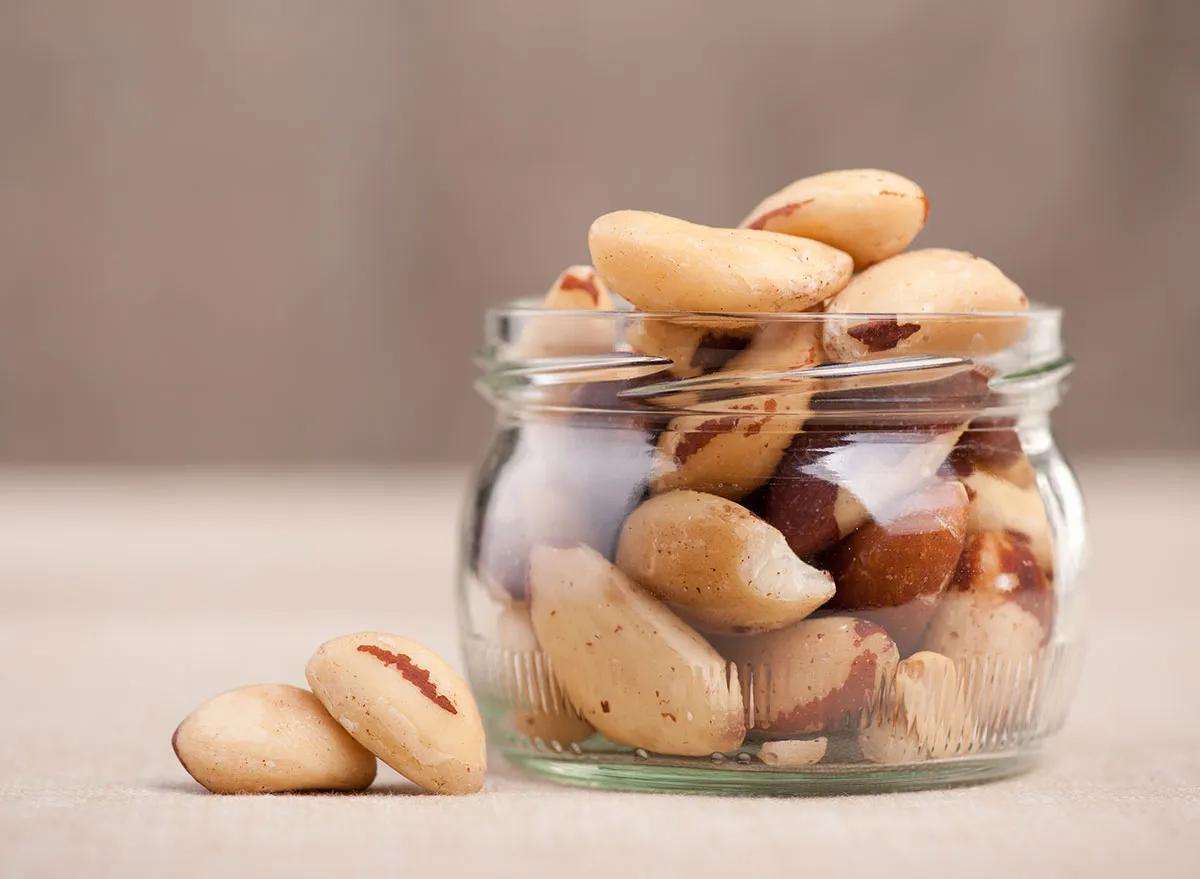
Brazil nuts’ powerful selenium punch helps regulate thyroid function in addition to killing off malignant cancer cells, according to a study in Nutrition and Cancer. As a waistline-shrinking bonus, Brazil nuts are rich in the amino acid L-arginine, which has been shown to blast belly fat.
Whole Grains
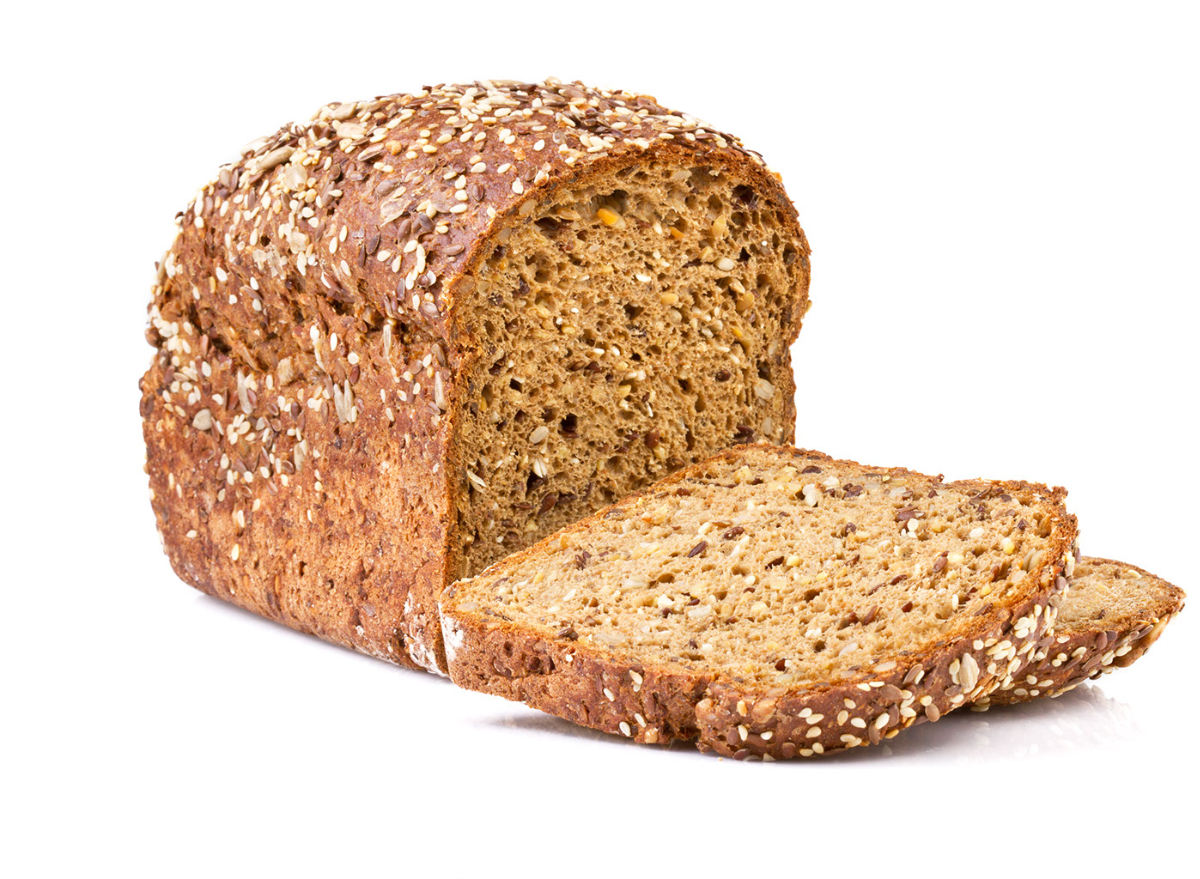
Whole grains are those rare, awesome carbs (think quinoa and oat bran) that can keep that tummy toned, as well as help you stay cancer-free. An in-depth analysis in the journal Circulation revealed that out of more than 786,000 individuals, those who munched on 70 grams of whole grains a day had a 20% lower risk of cancer mortality, as well as a 22% lower risk of total mortality and a 23% lower risk of cardiovascular disease mortality. That’s compared to people who rarely or didn’t consumed whole grains.
Grapes
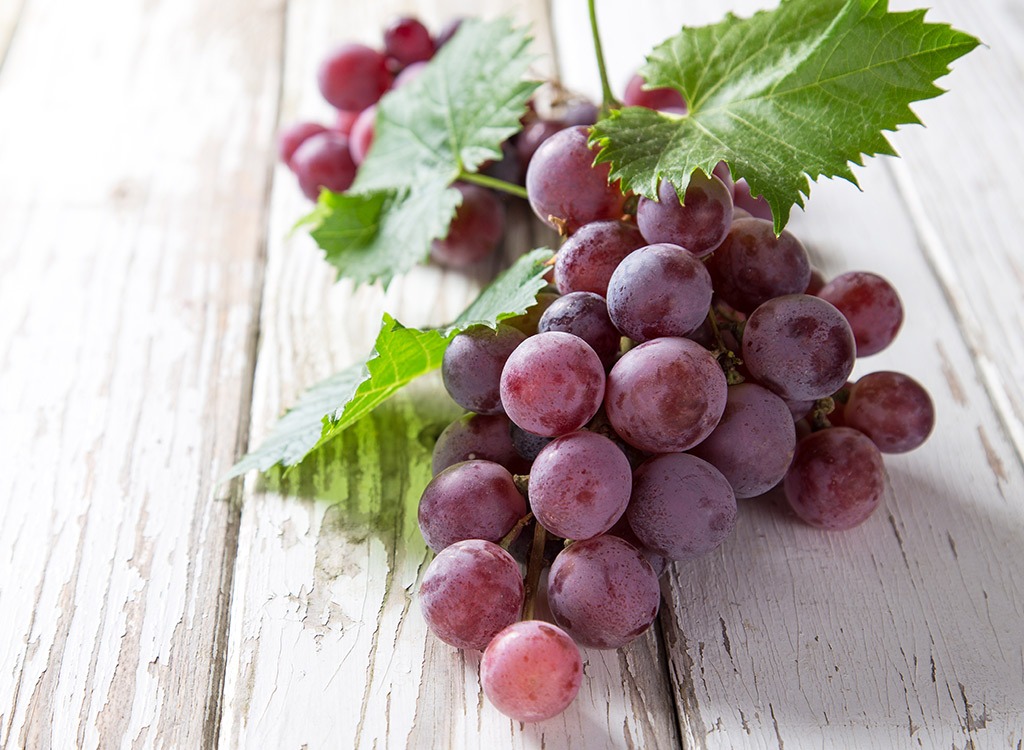
“Grapes and/or grape-related products in diets along with maintaining an active healthy lifestyle has both practical and translation potential in the fight against cancer and is thus beneficial to the general population,” a study in The Journal of Nutrition stated.
Green Peas
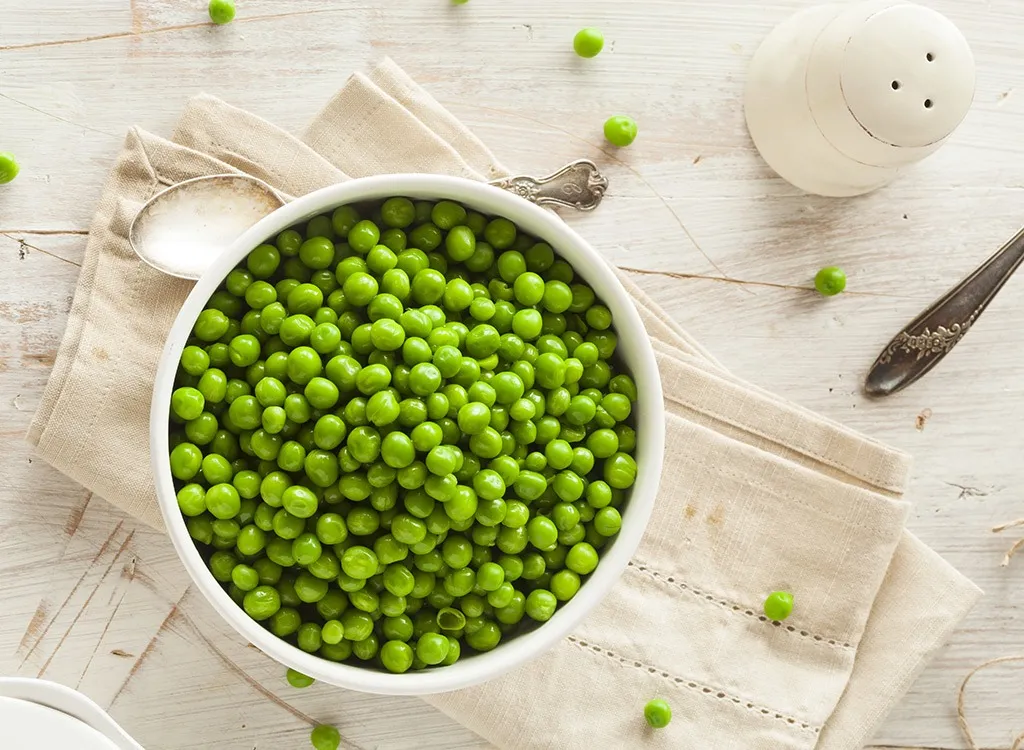
The closest you’ve gotten to eating peas as a kid was forking them around your dinner plate, but this stellar veggie is definitely deserving of a bite. A study in Pharmacognosy Review shows that the green peas’ apigenin, hydroxybenzoic, hydroxycinnamic, luteolin, and quercetin content can help fight cancer.
Lentils

A study in the journal Cancer Causes & Control discovered that a high intake of legumes—that’s where lentils come in—possess the potency to decrease the risk of cancers in the stomach, upper aerodigestive tract (the respiratory tract and the upper digestive tract combined), colorectum, and kidneys. Another fun fact: This affordable legume is also one of our 50 Foods To Lose Your Gut.
